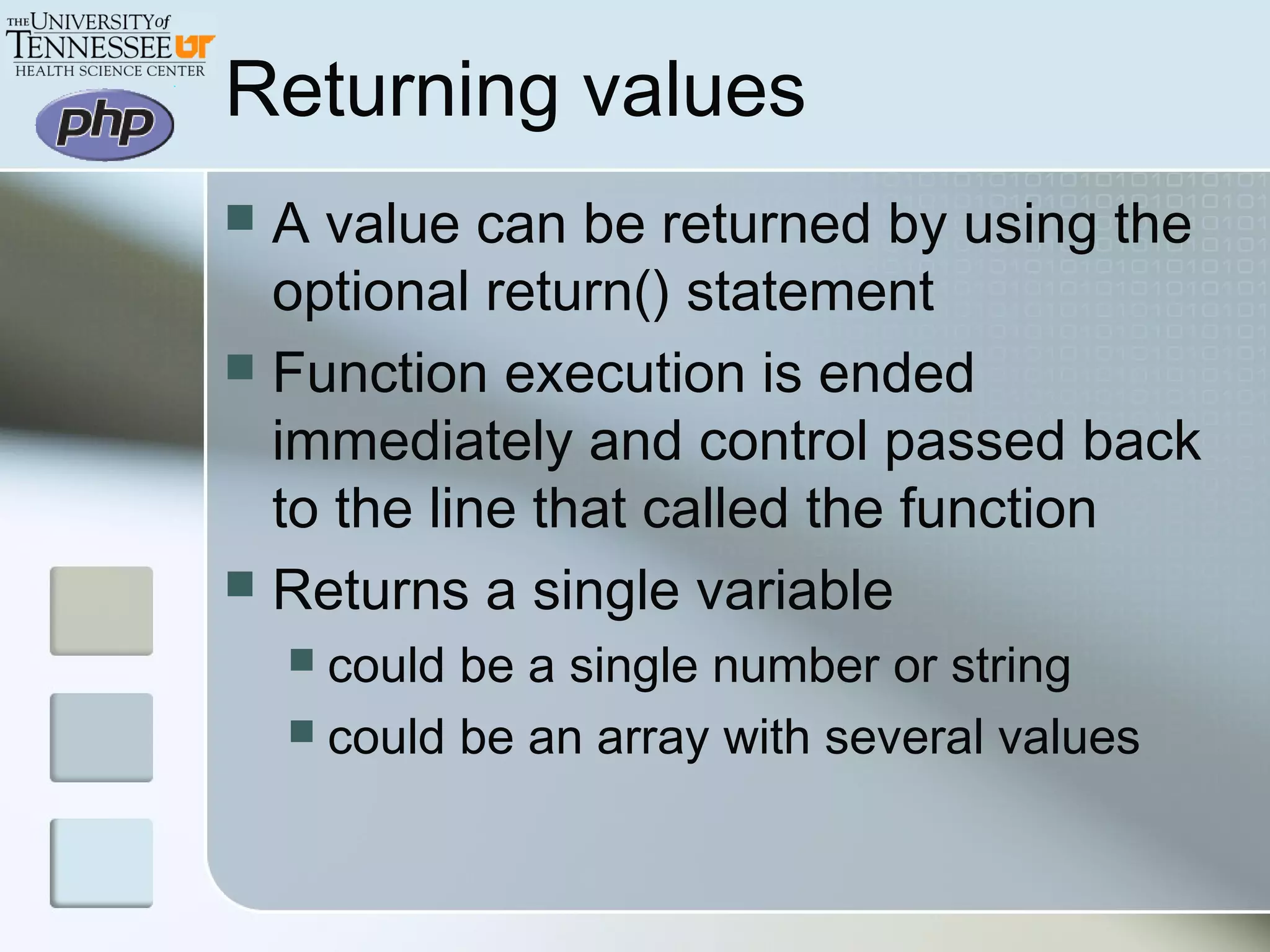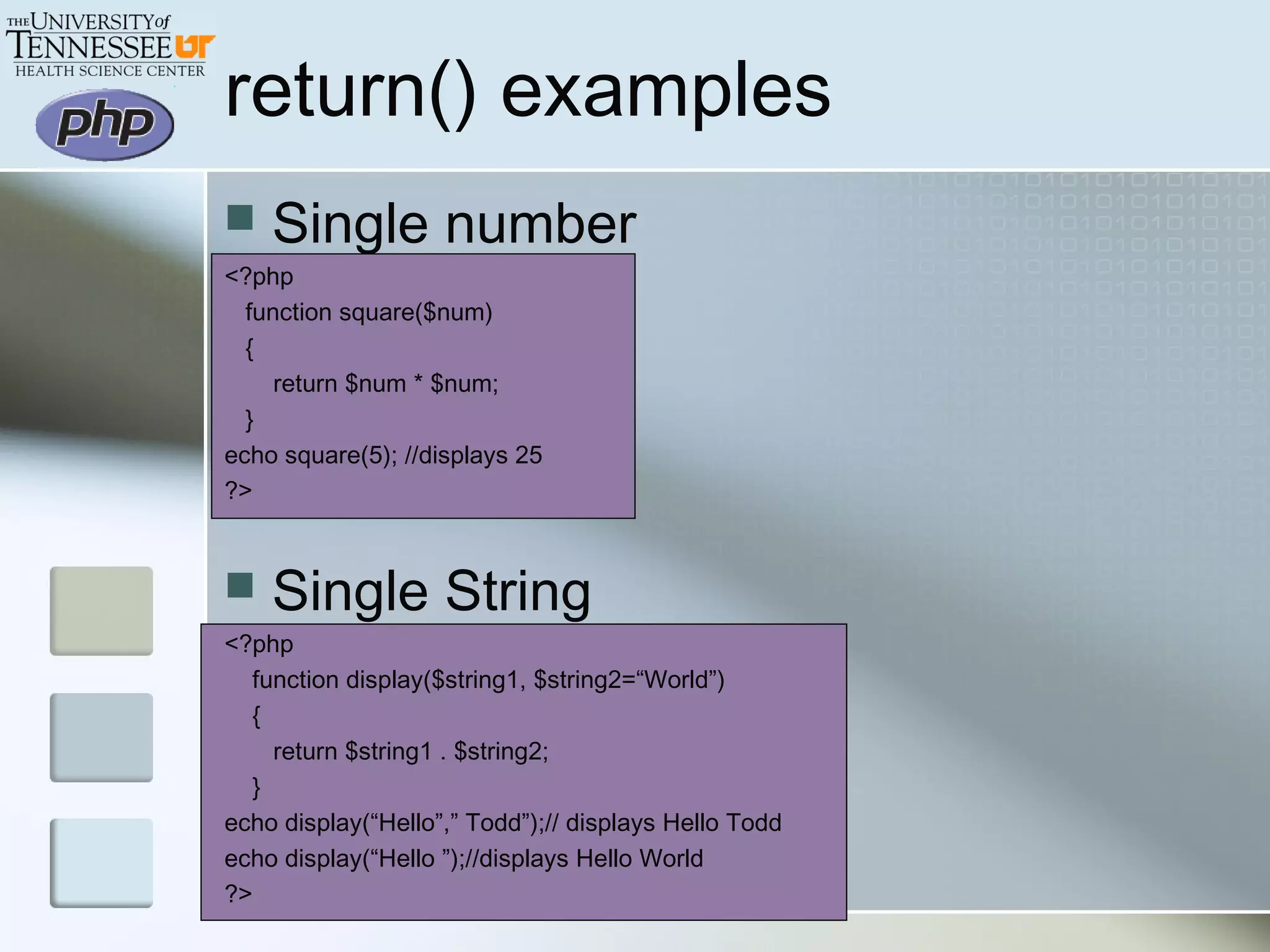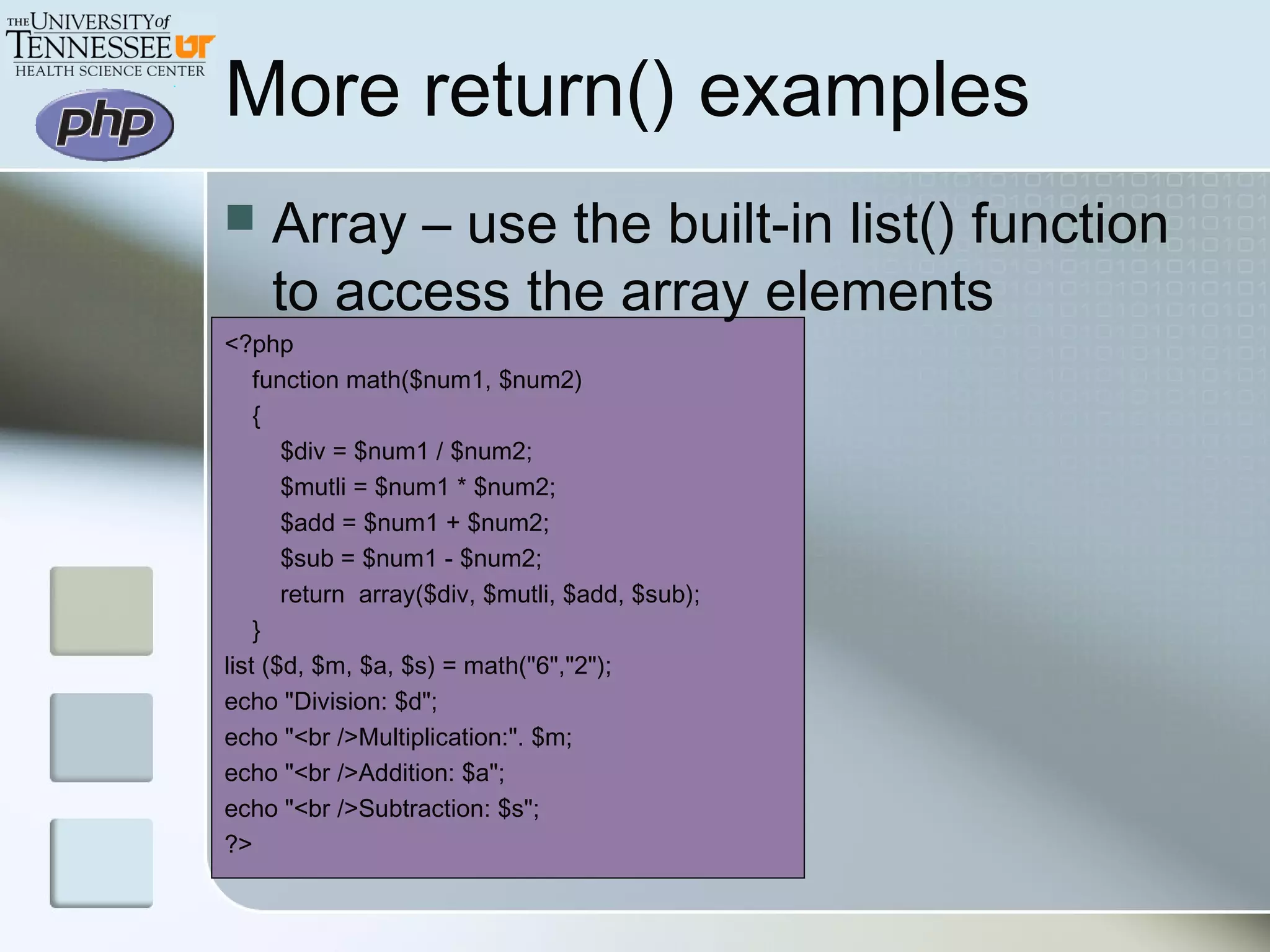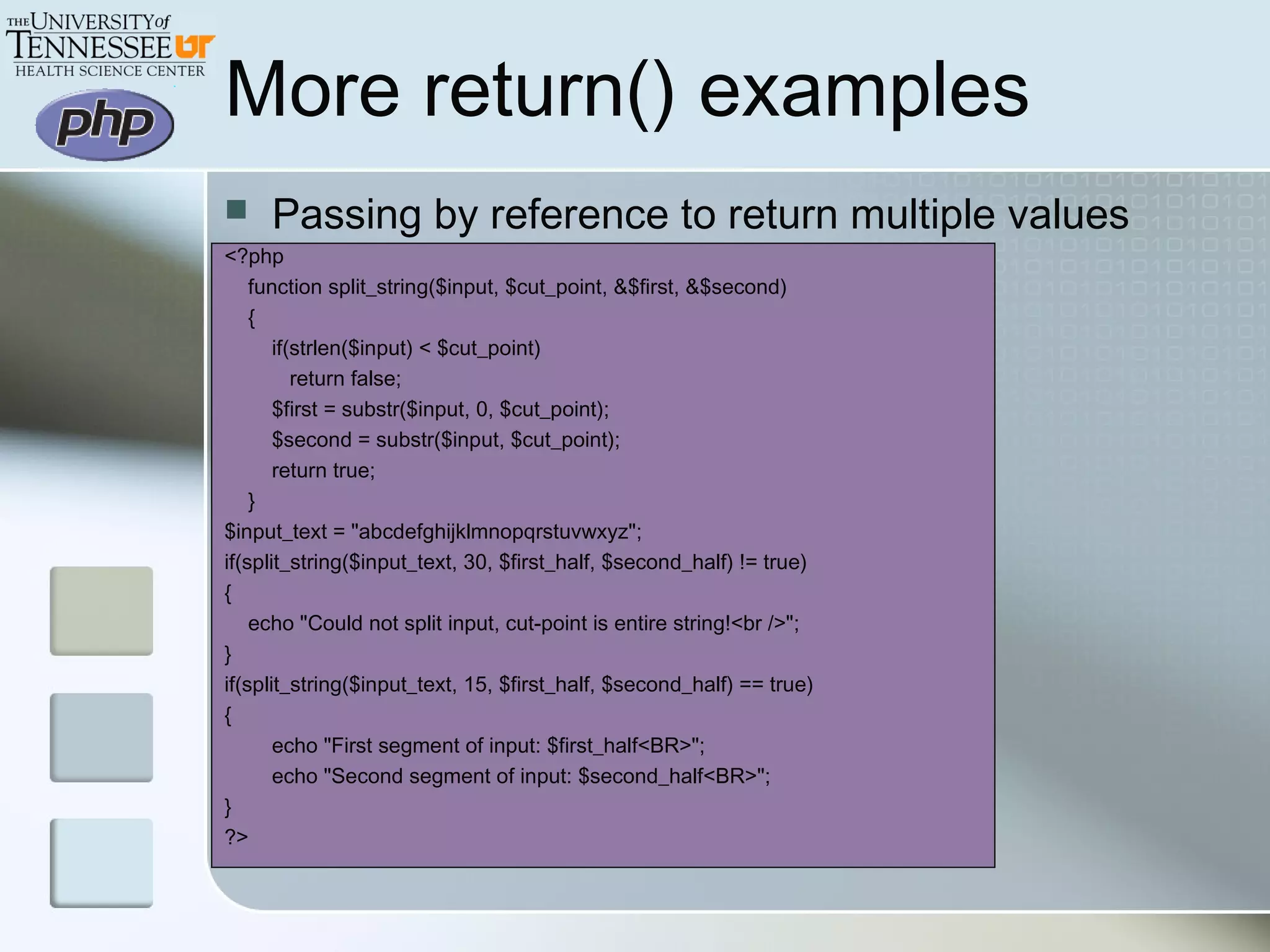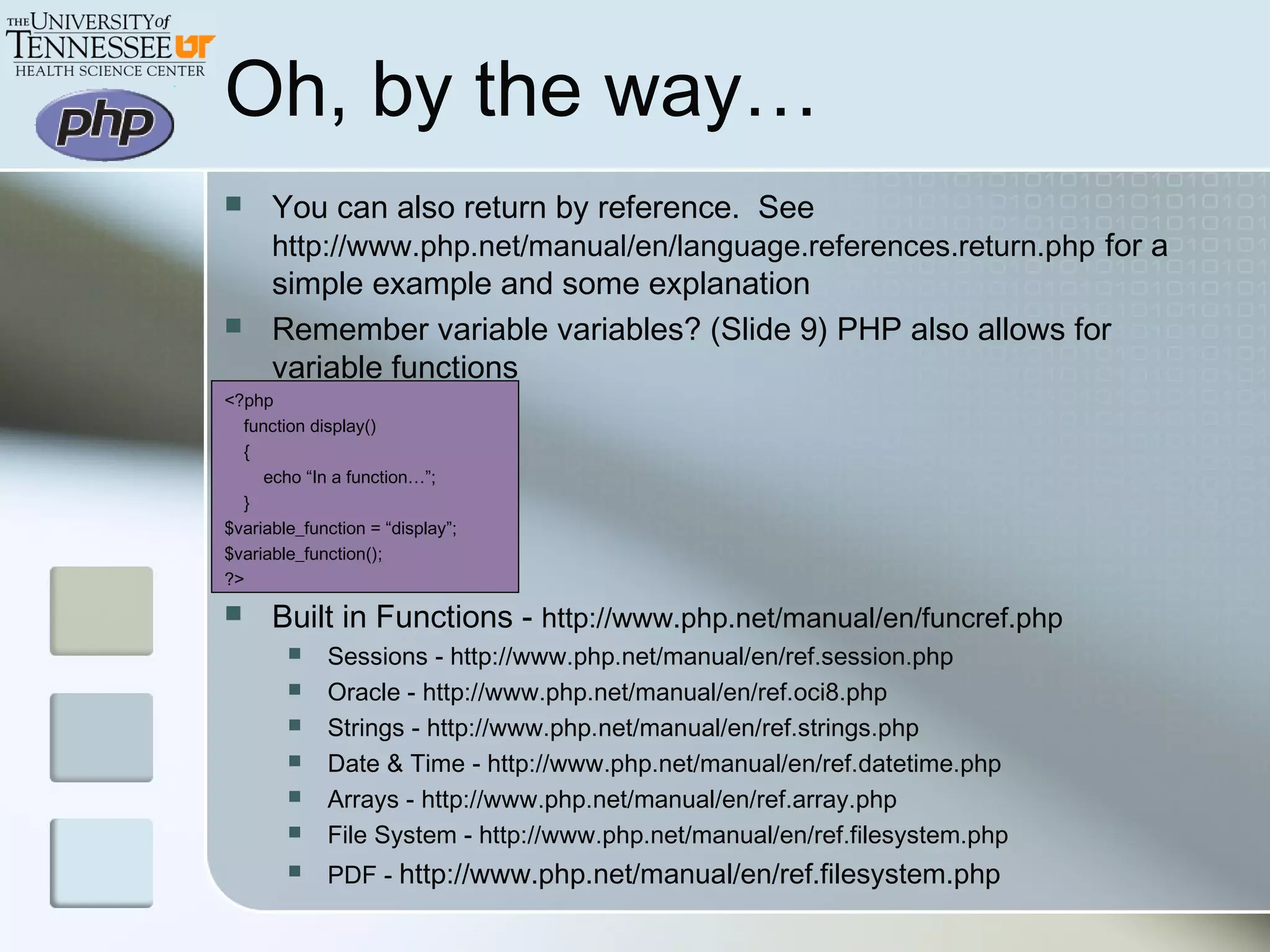The document provides an introduction to PHP by discussing what PHP is, the basic syntax, variables, data types, operators, and control structures in PHP. PHP is a server-side scripting language used for web development that allows embedding scripts into HTML. The basic syntax uses <?php ?> tags to escape HTML. PHP supports variables, arrays, and basic data types like integers, floats, strings, booleans, and NULL. Operators include arithmetic, assignment, comparison, and logical operators. Control structures include if/else statements, while loops, for loops, and switch statements.


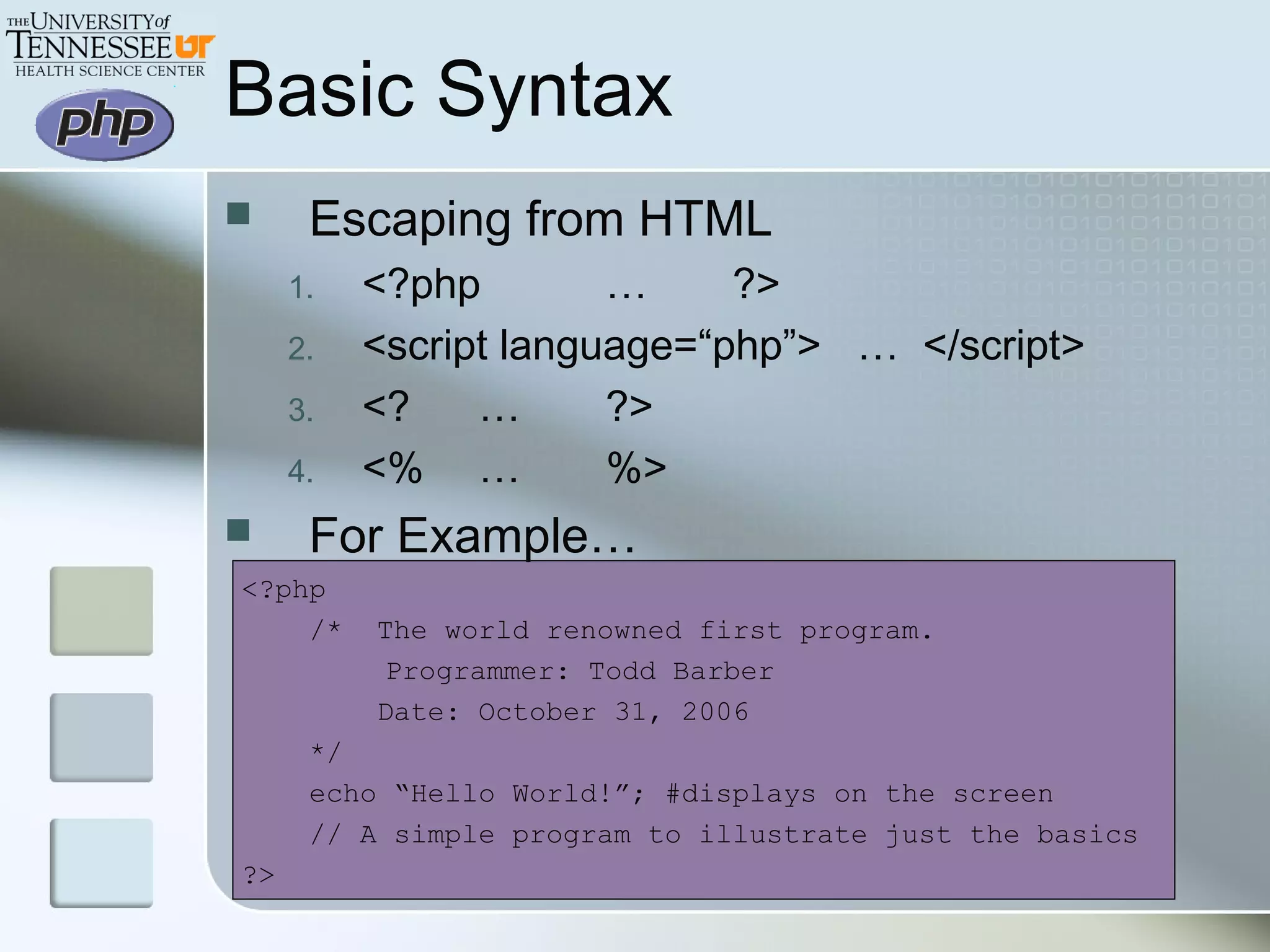
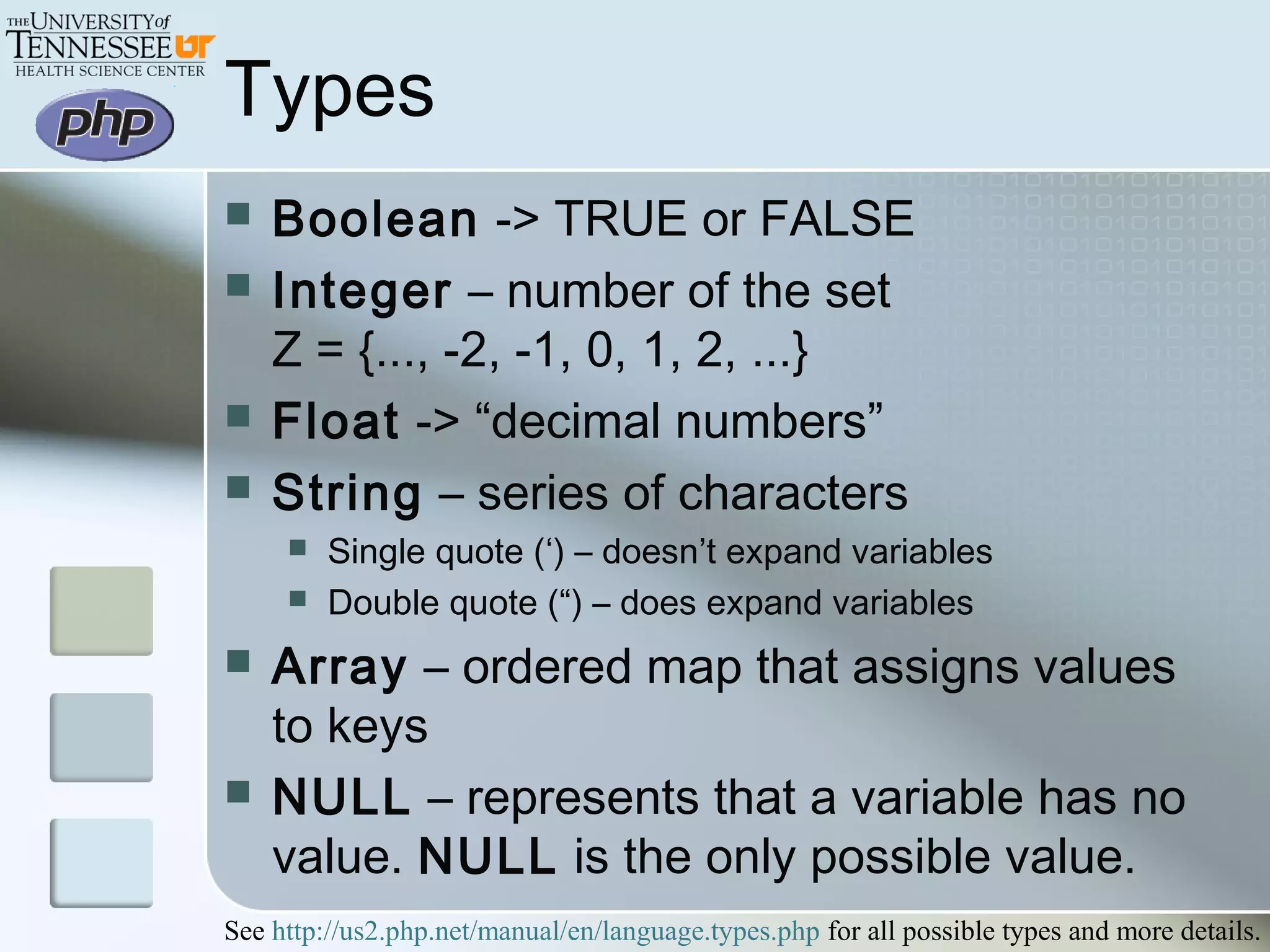
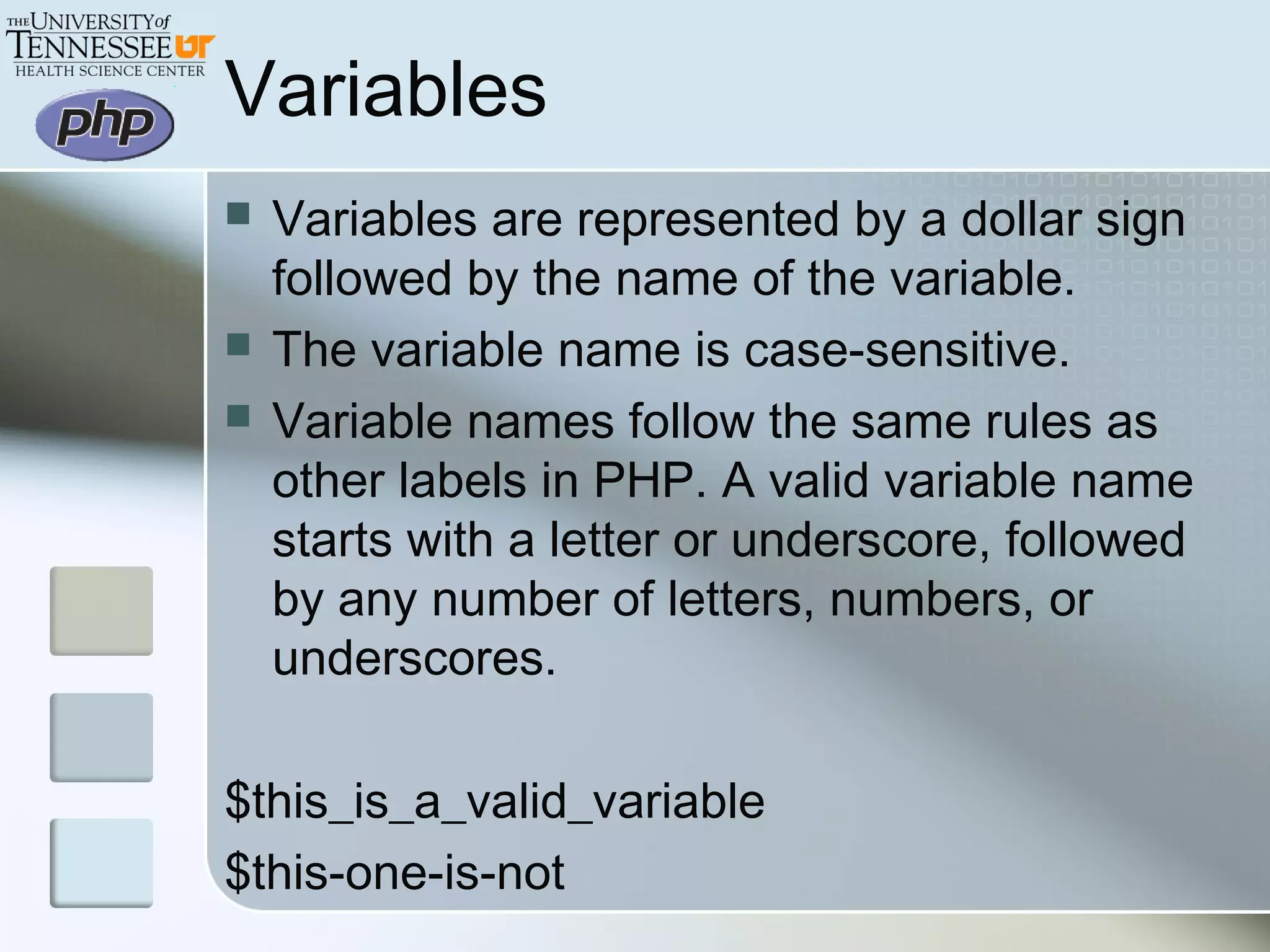
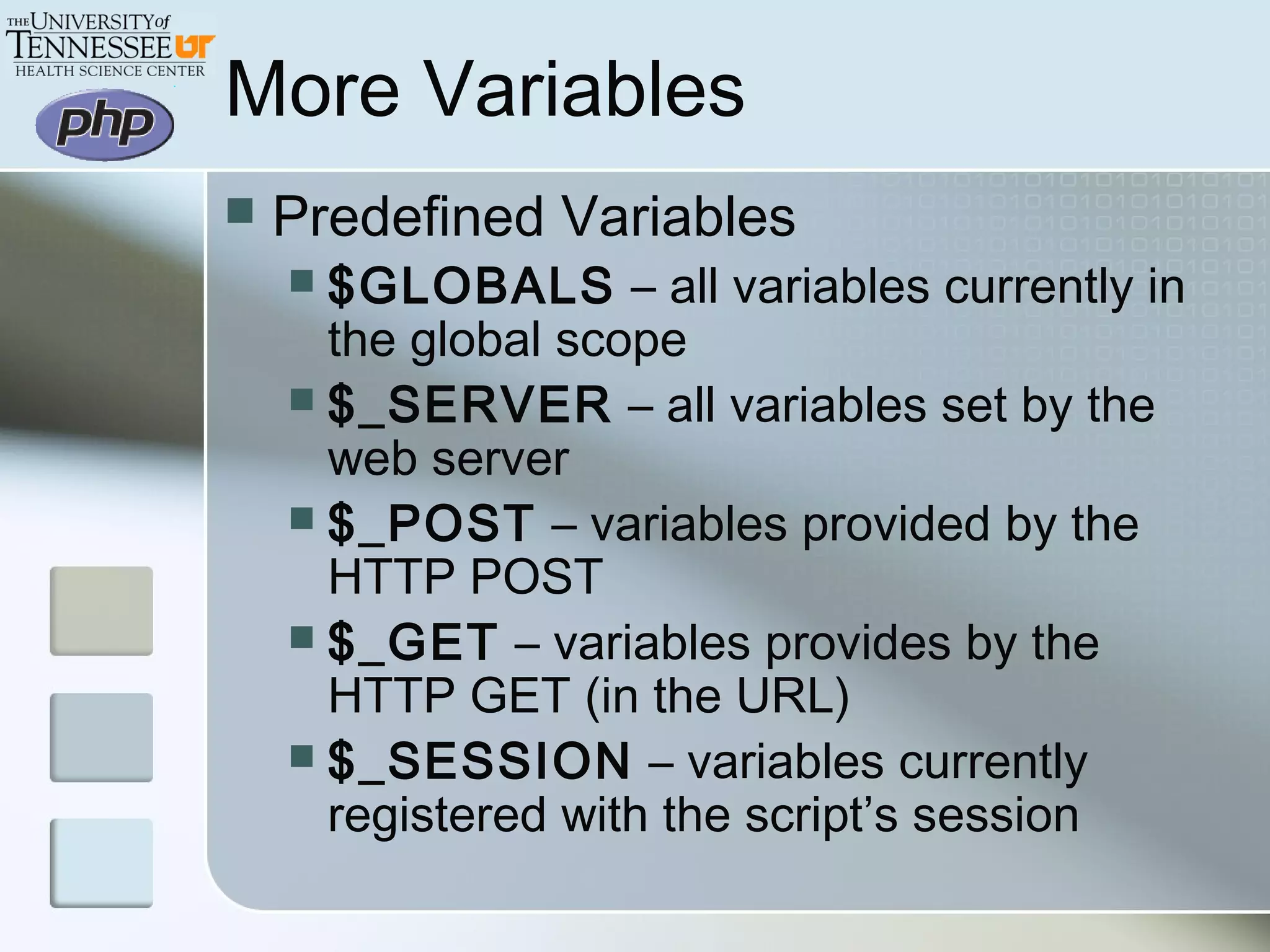
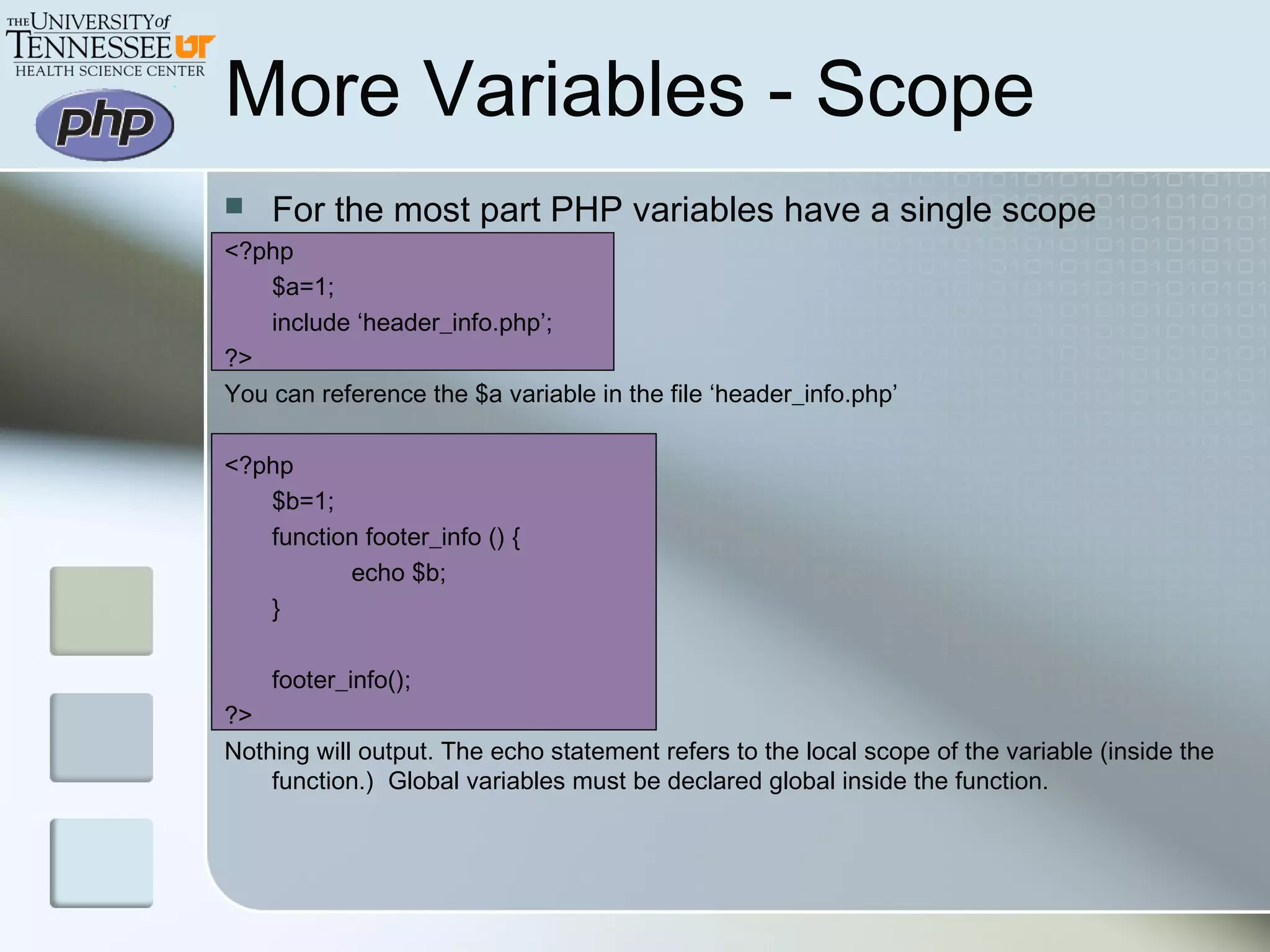
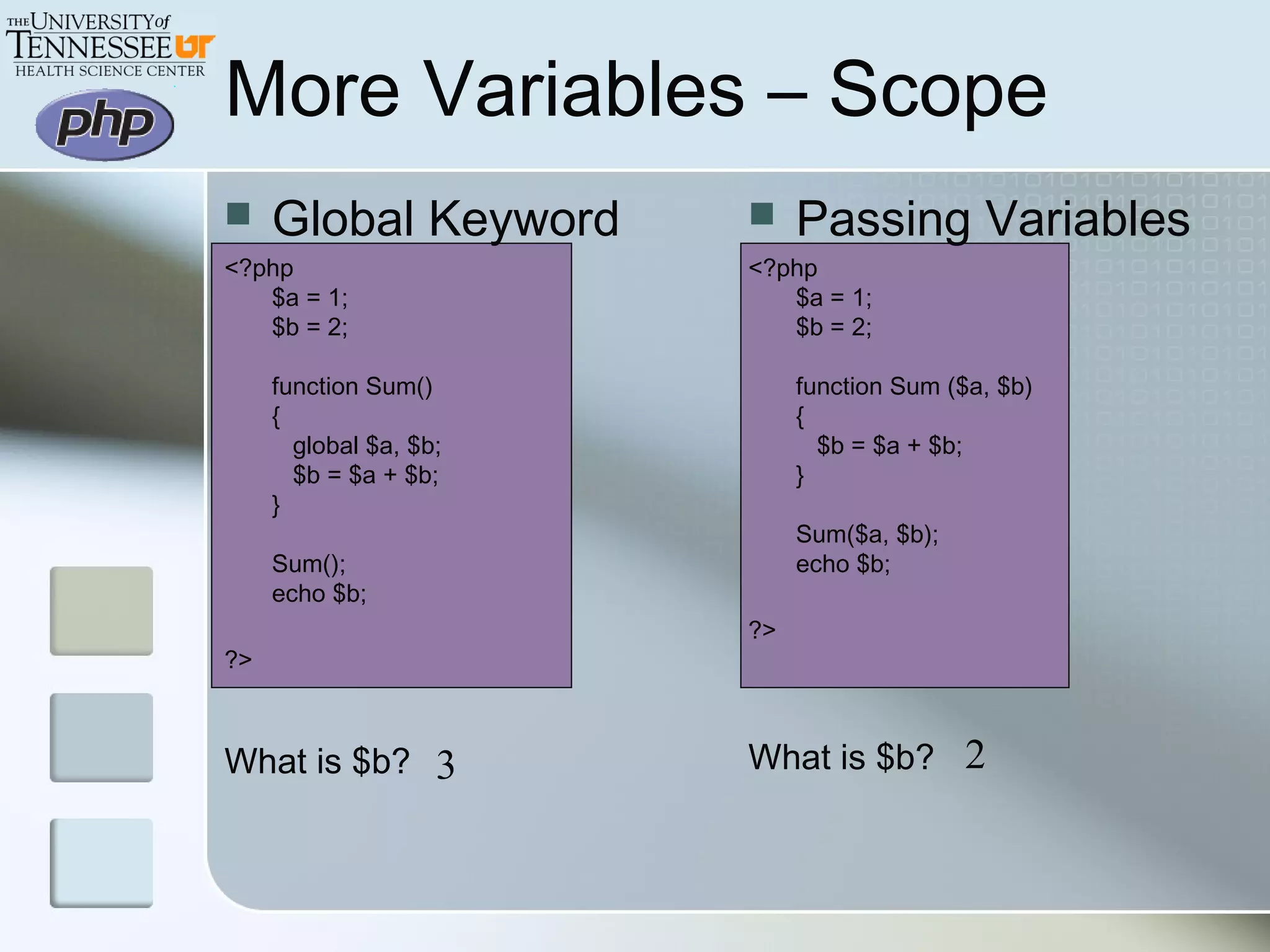
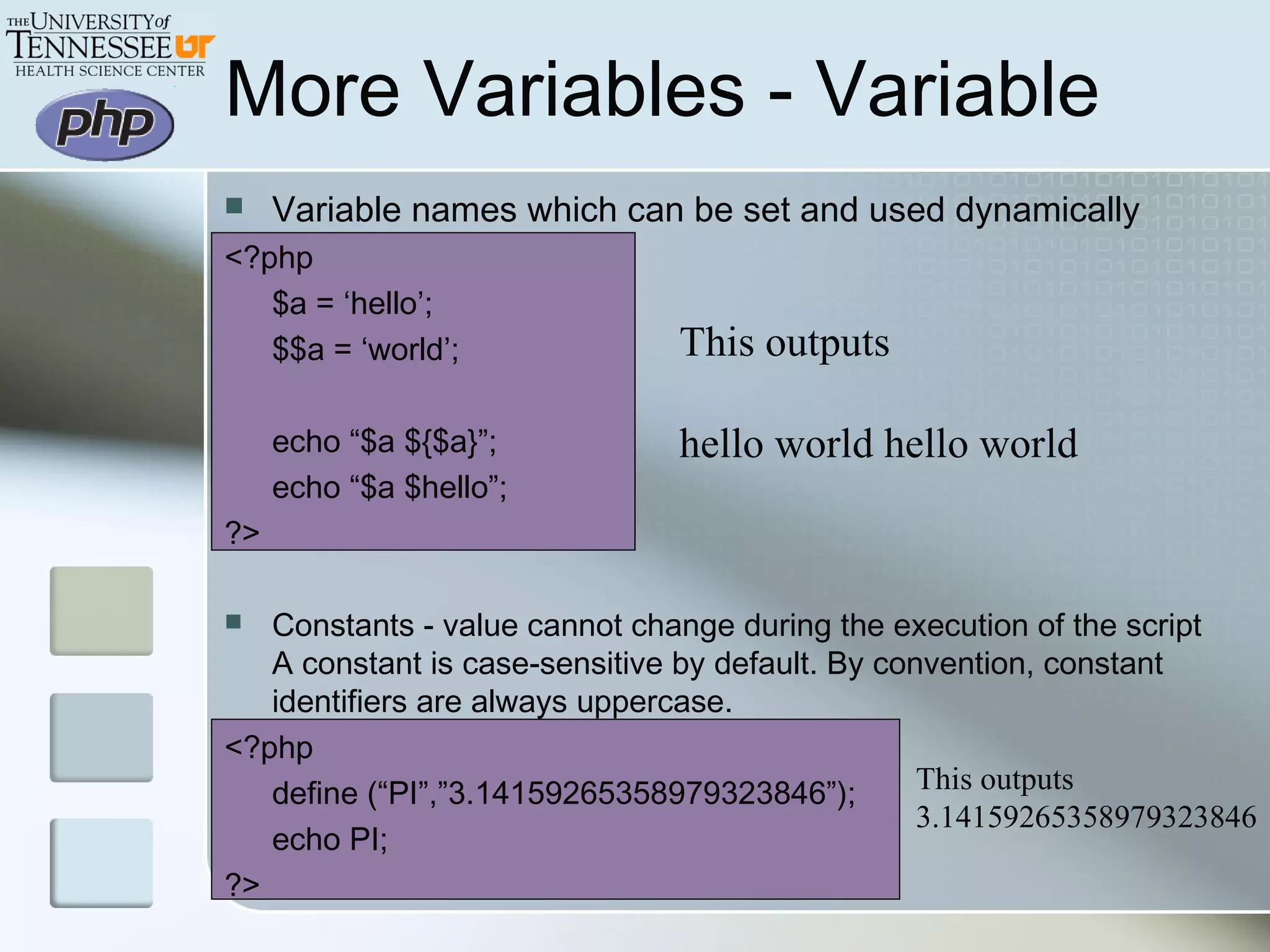
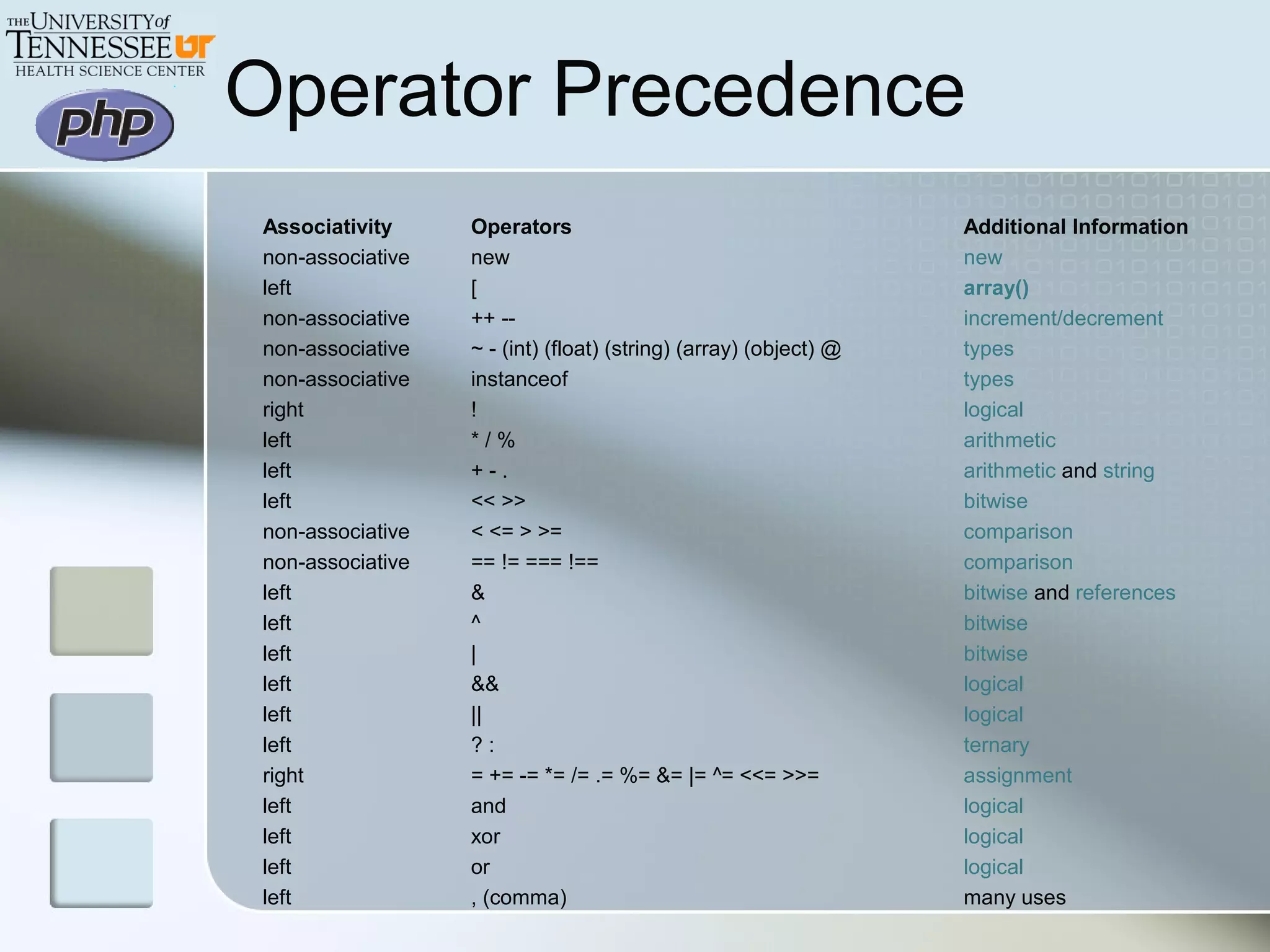
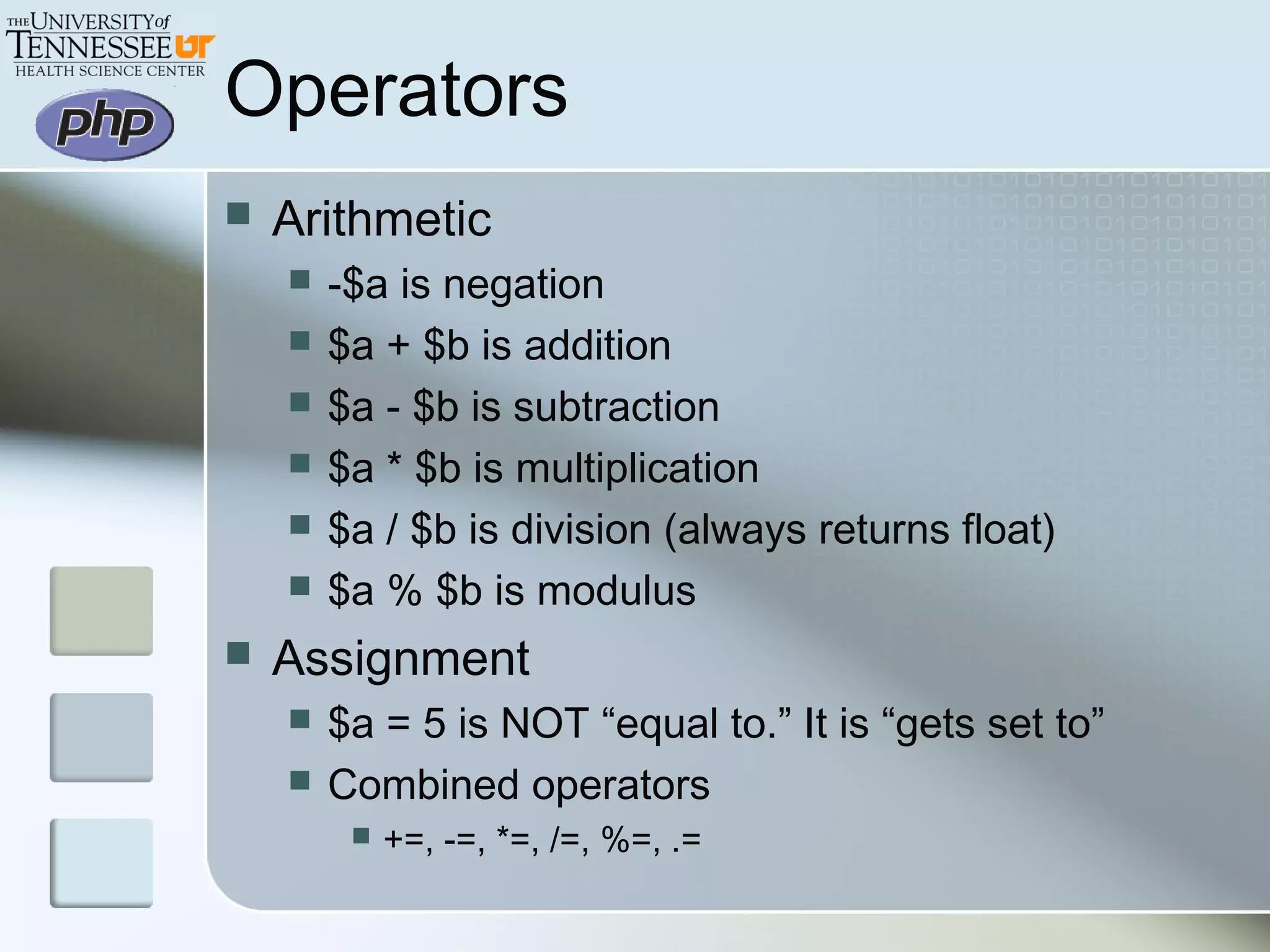
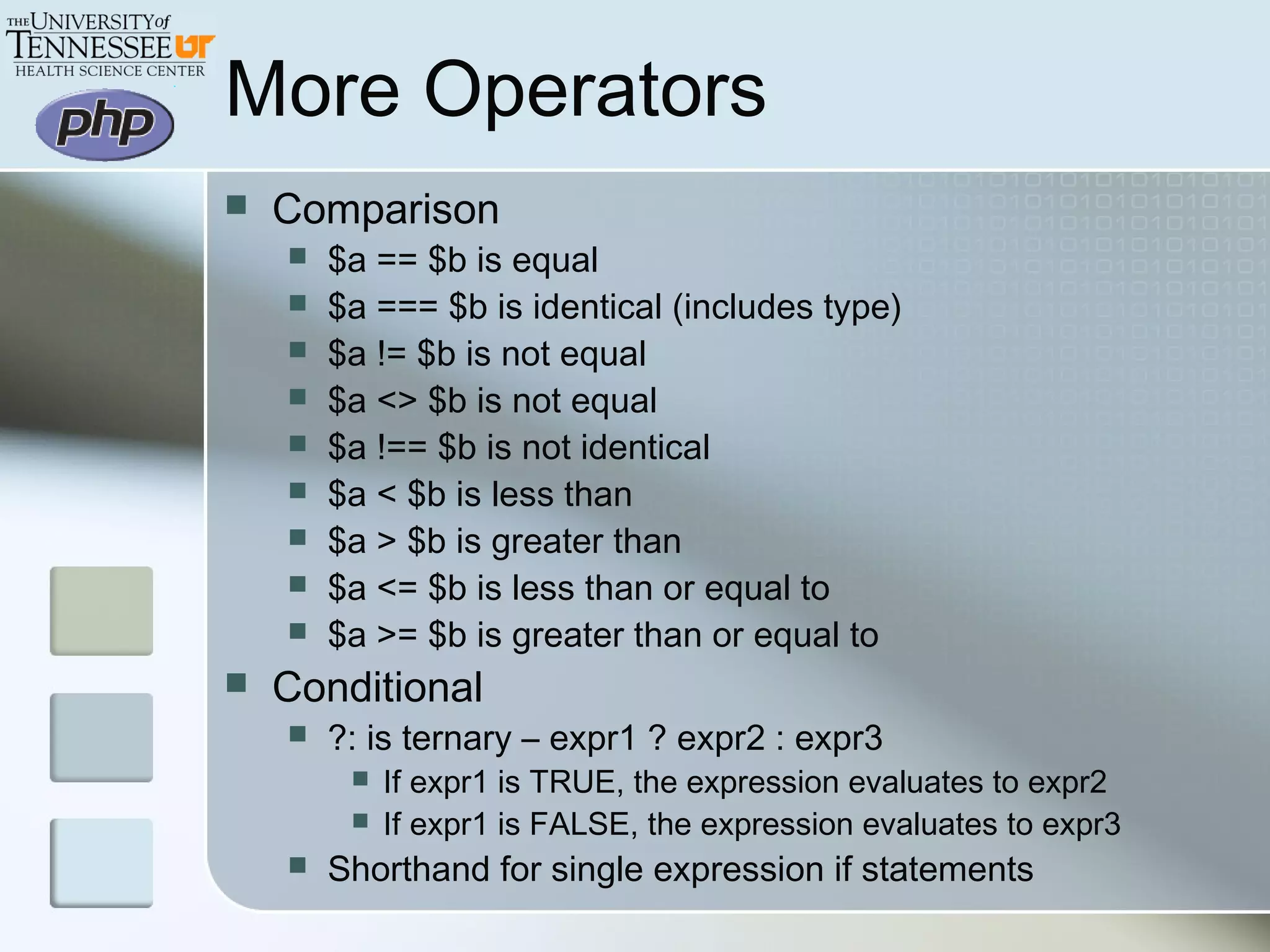
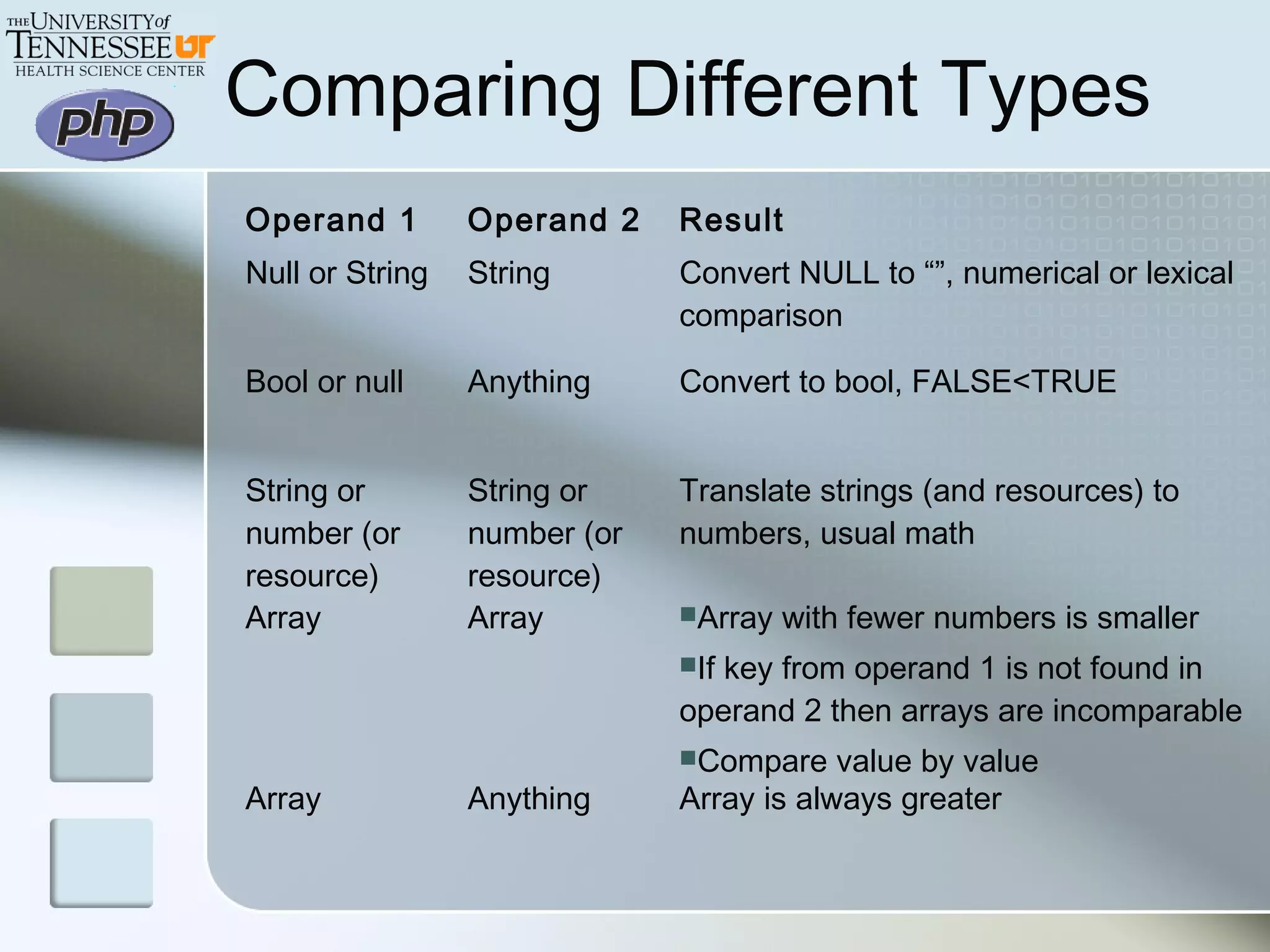
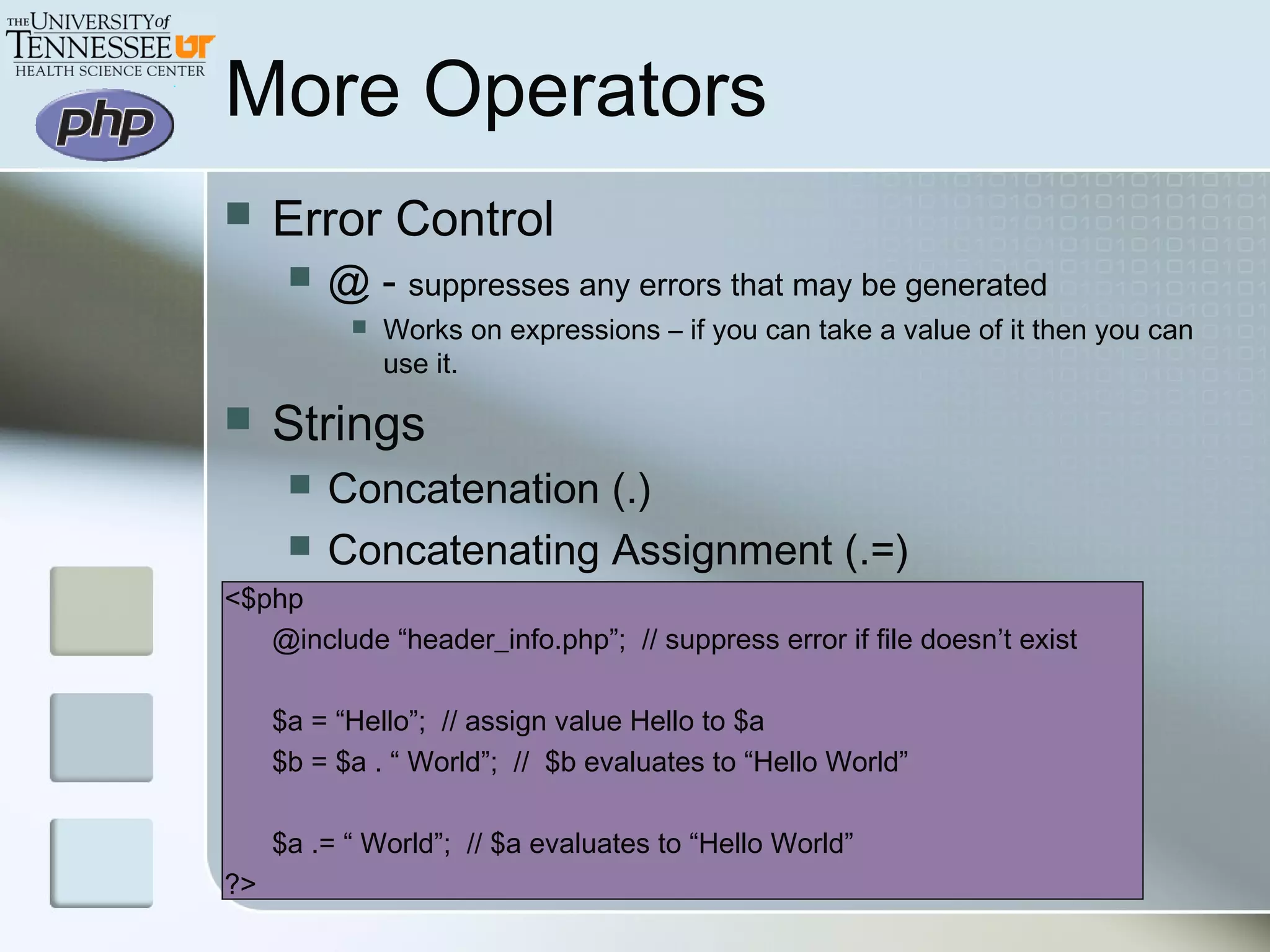
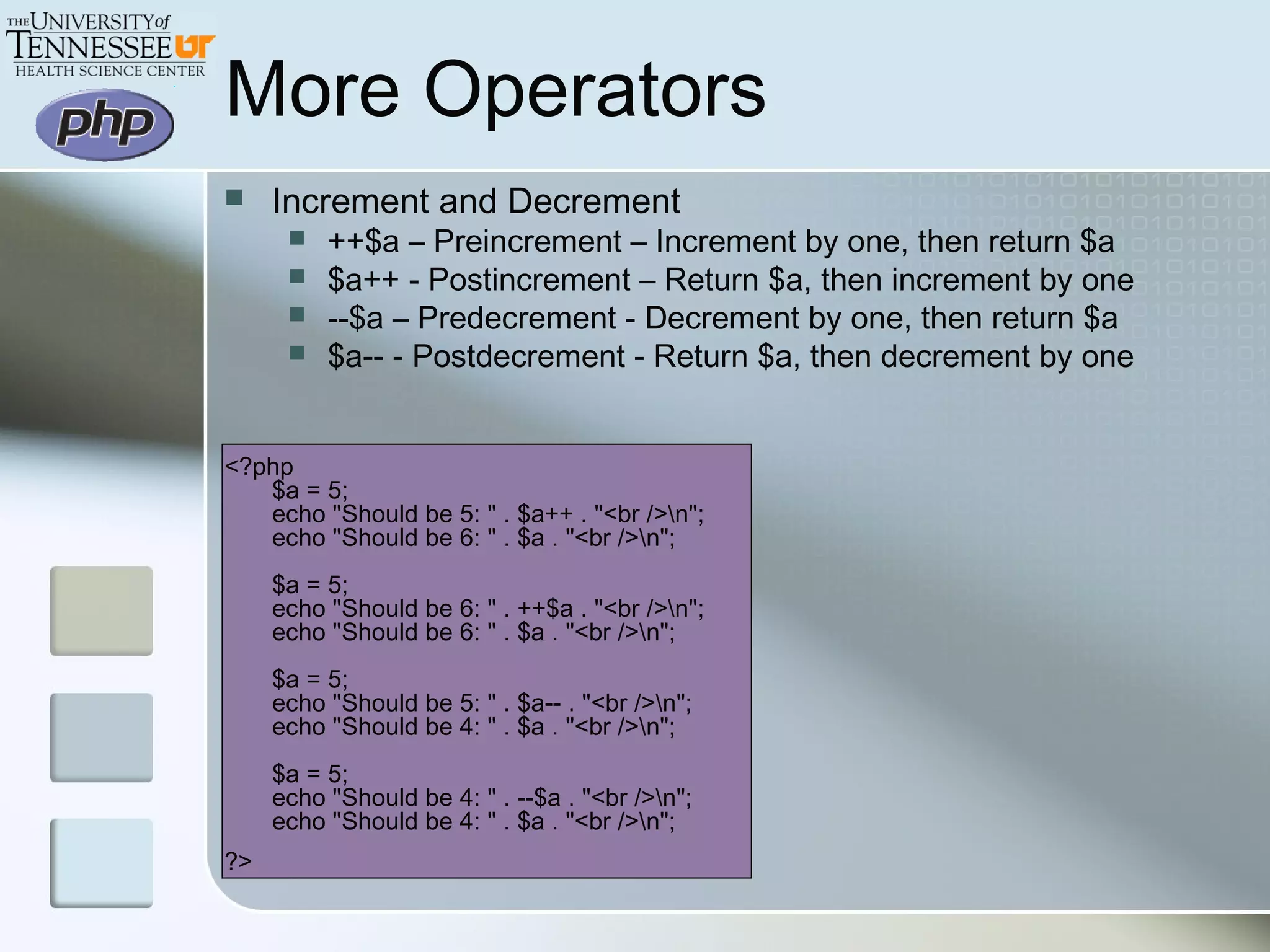
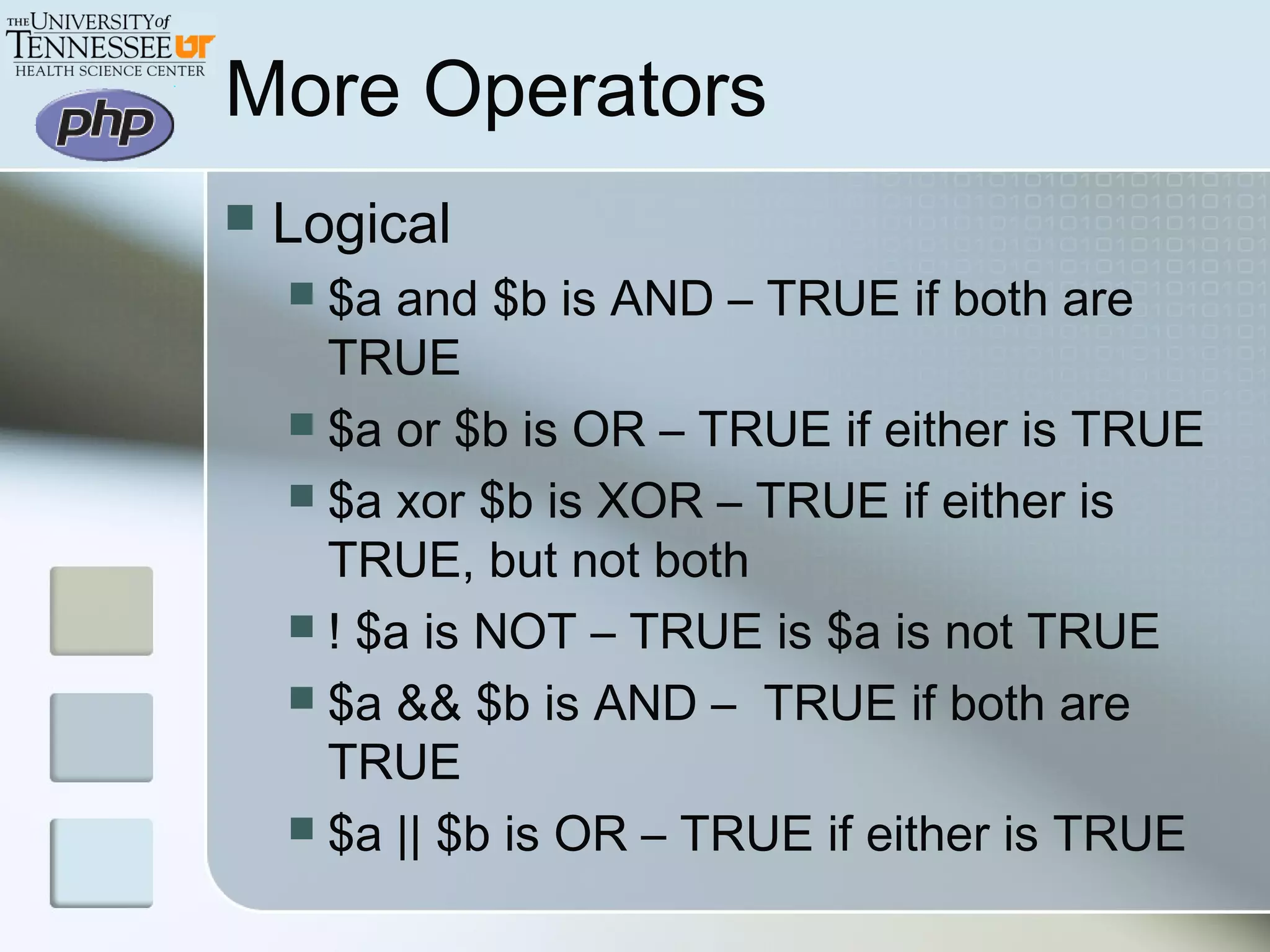
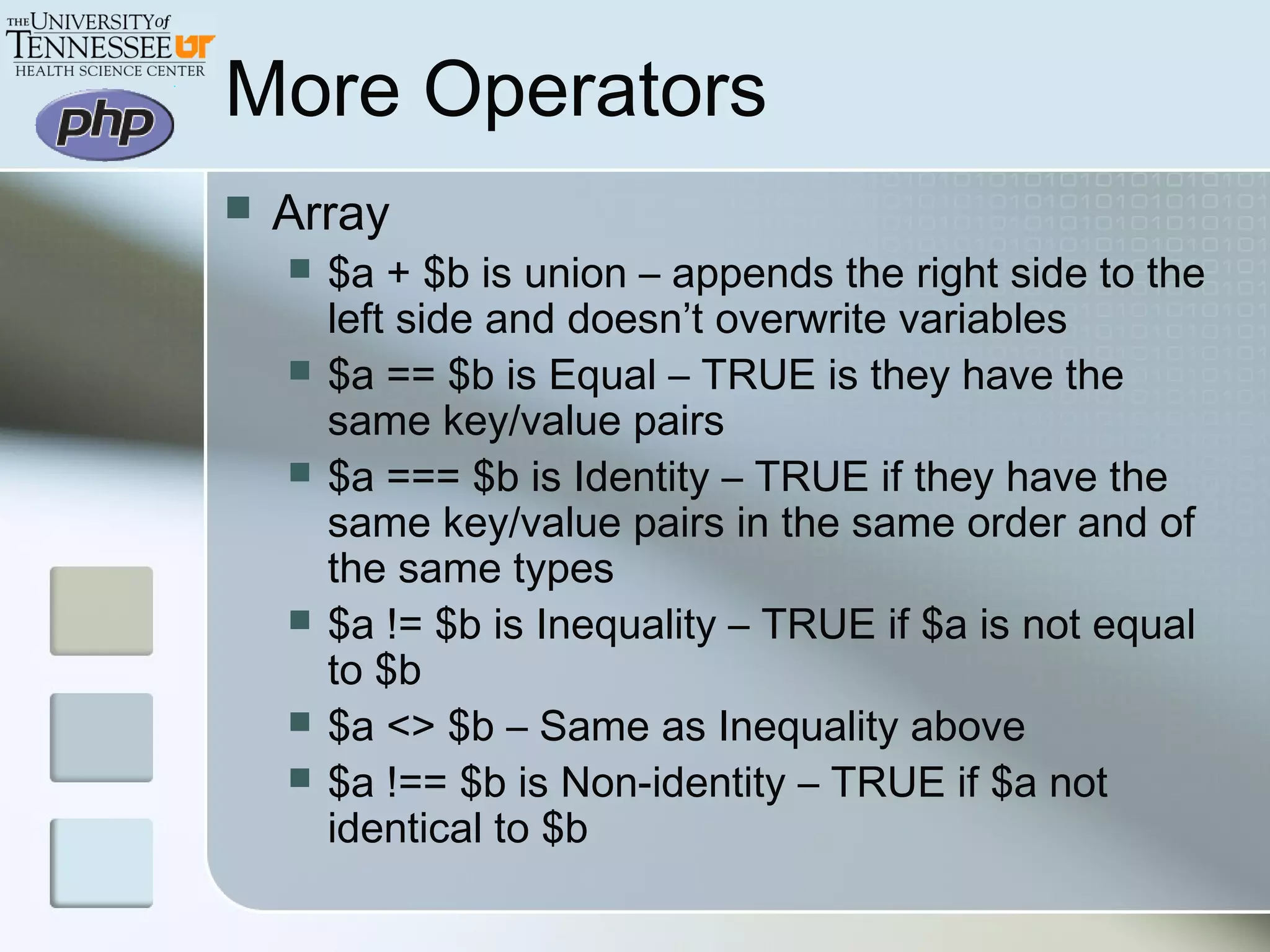
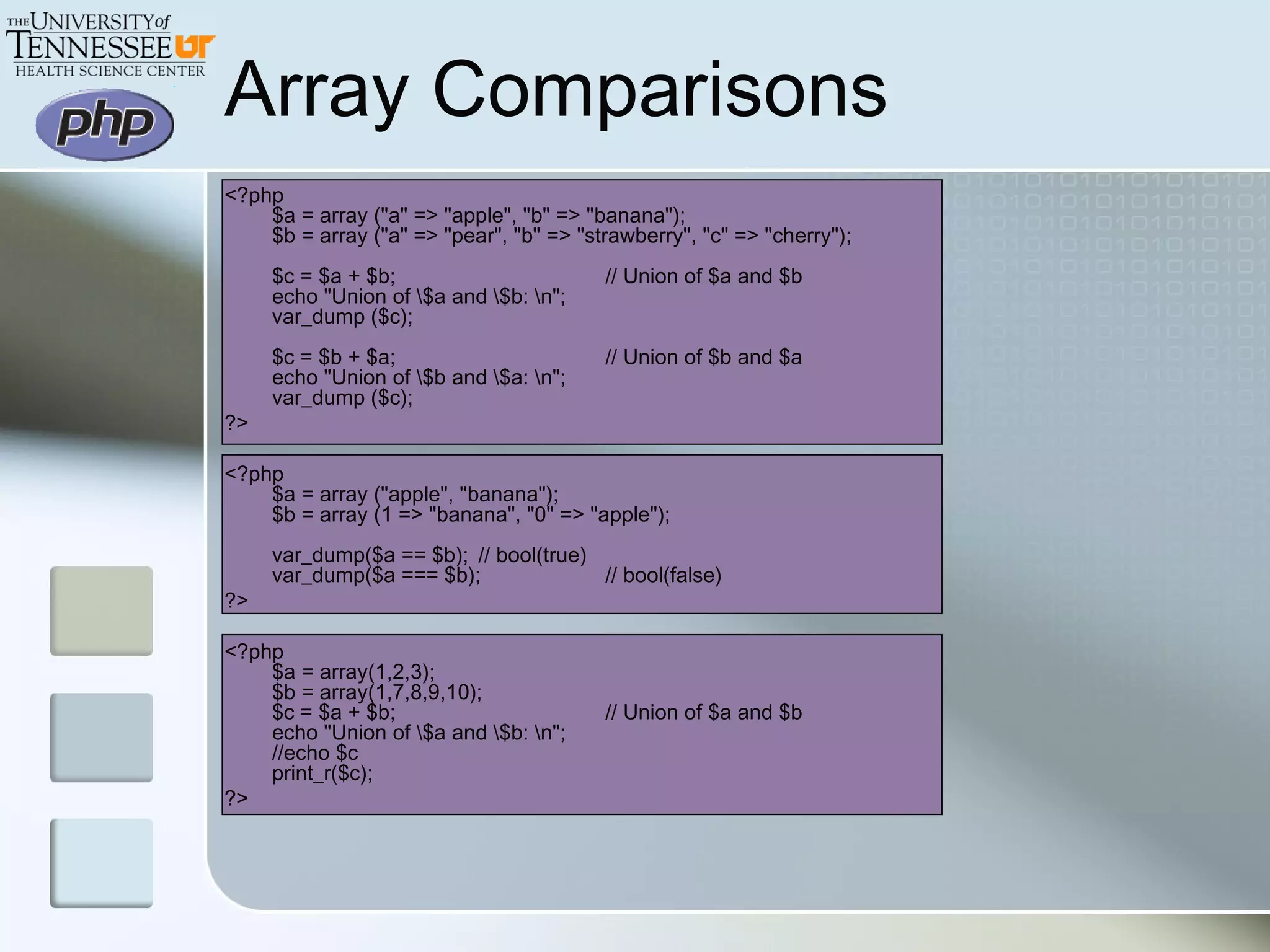
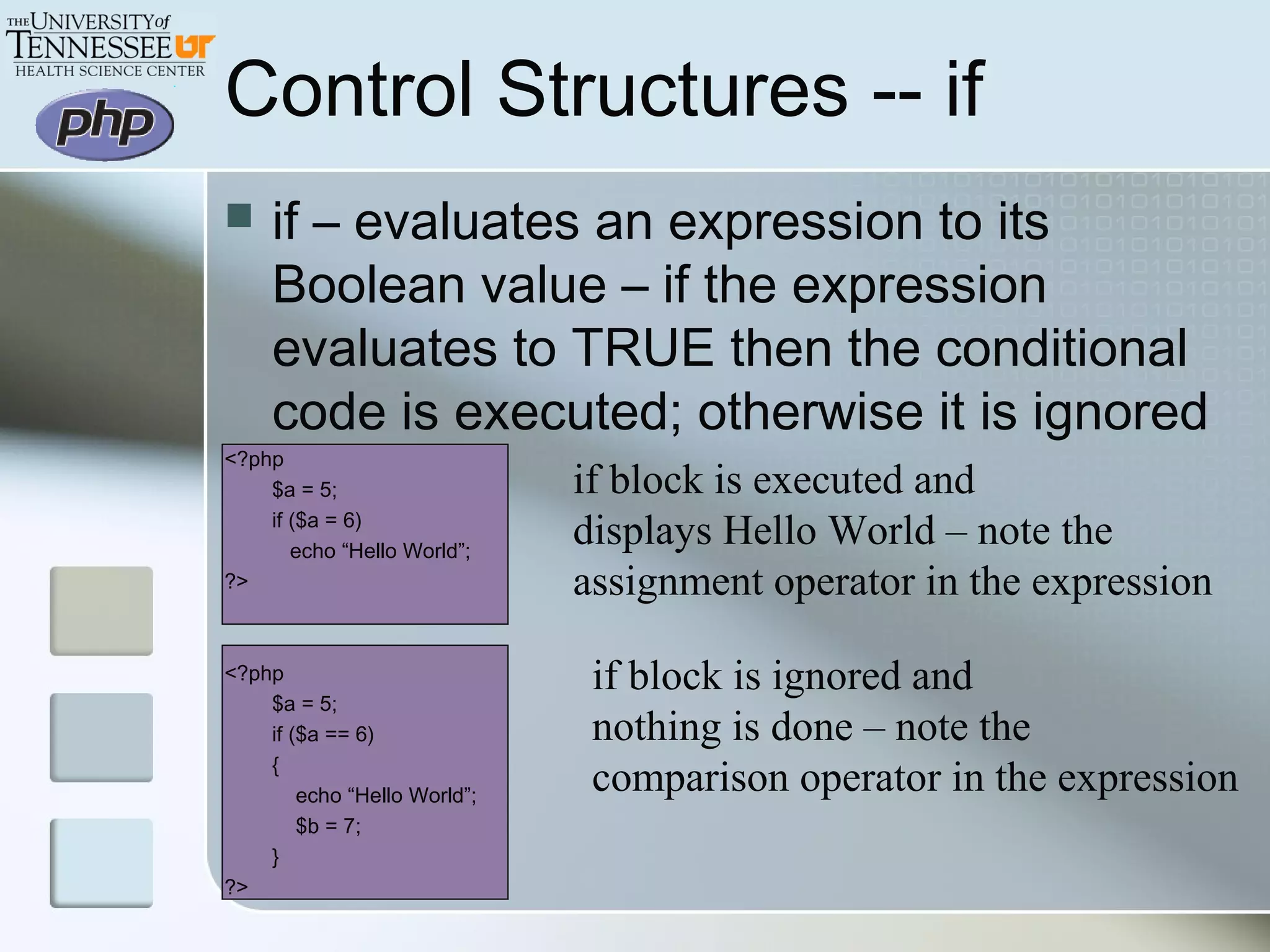
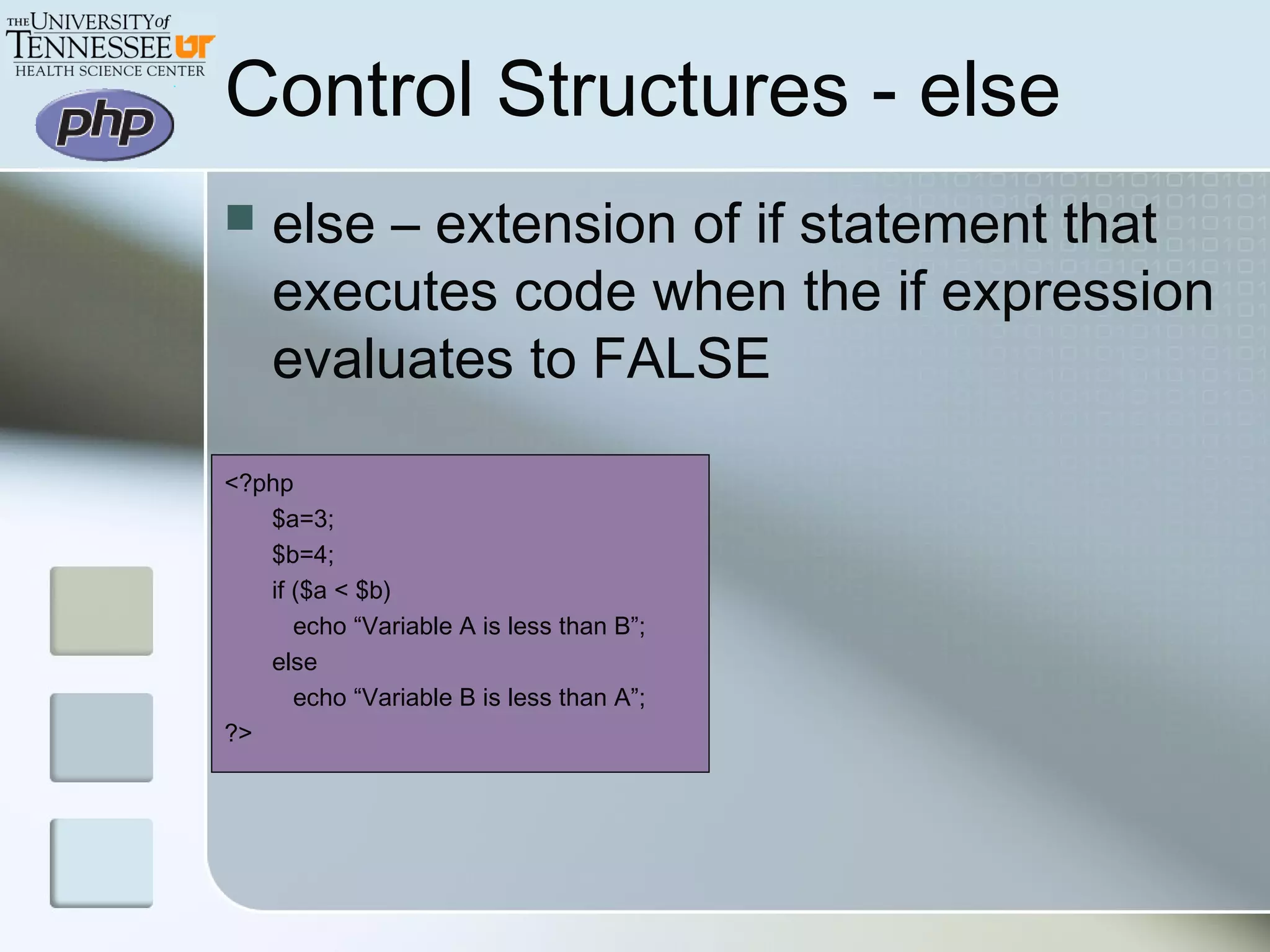
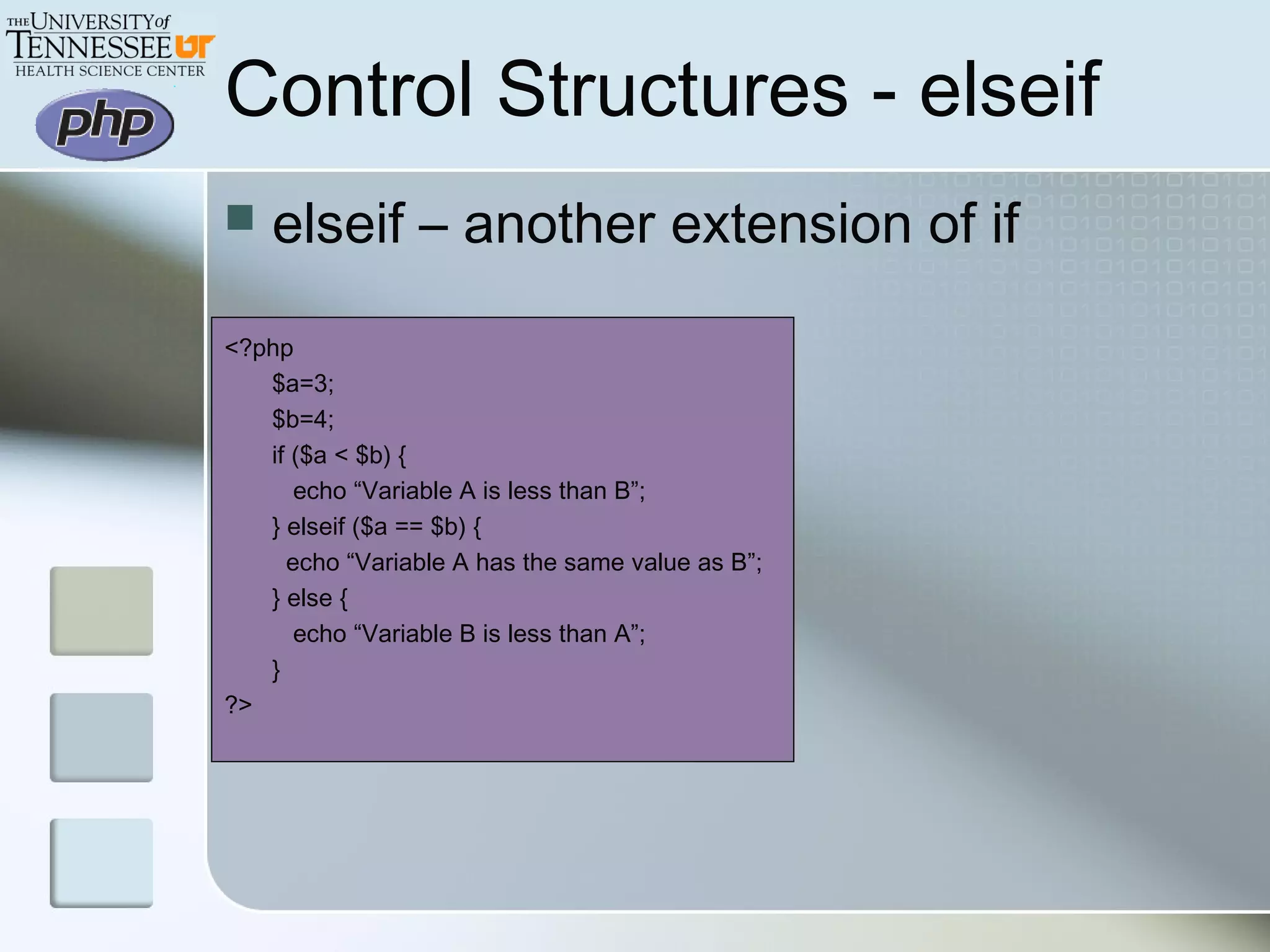
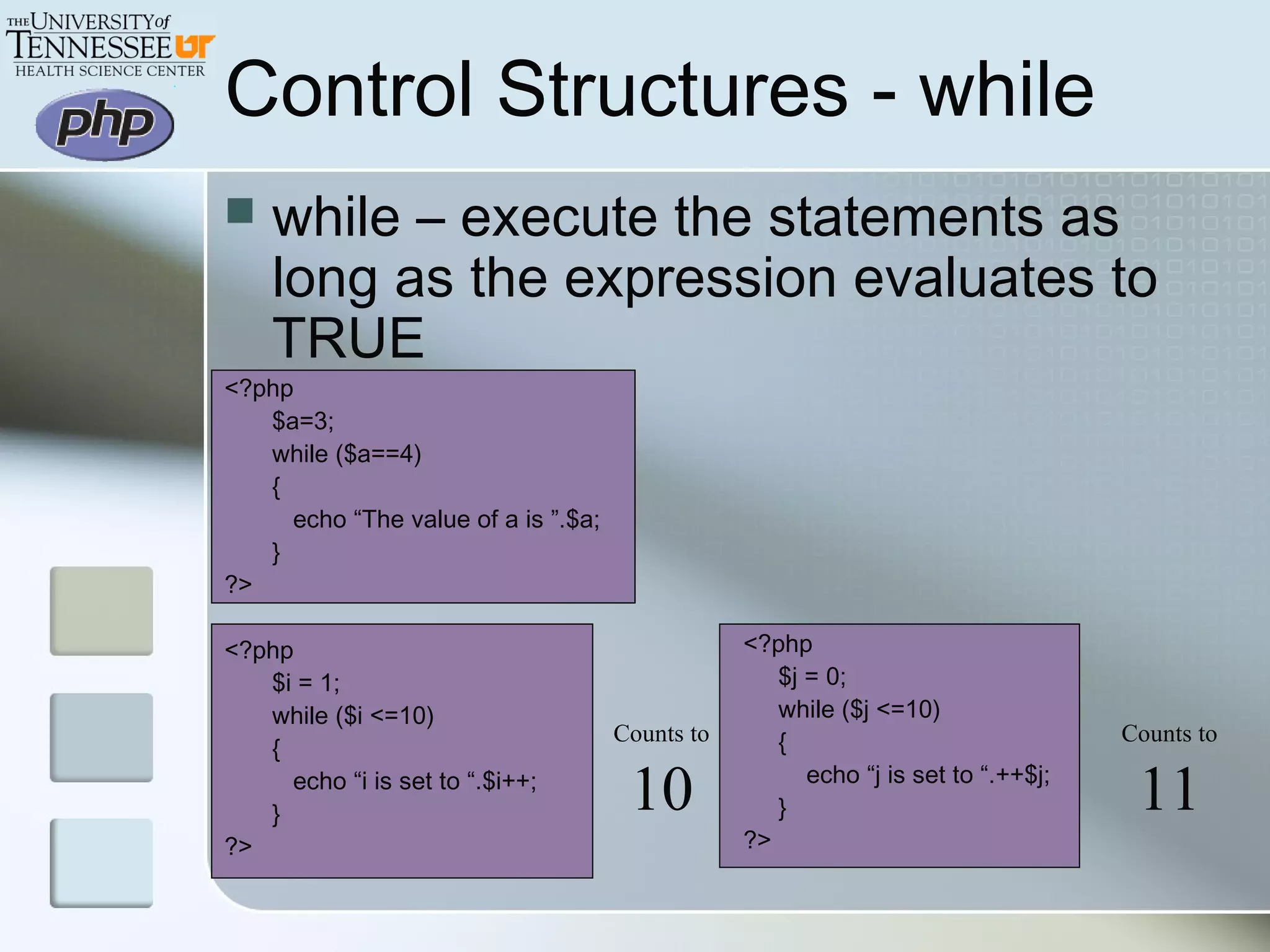
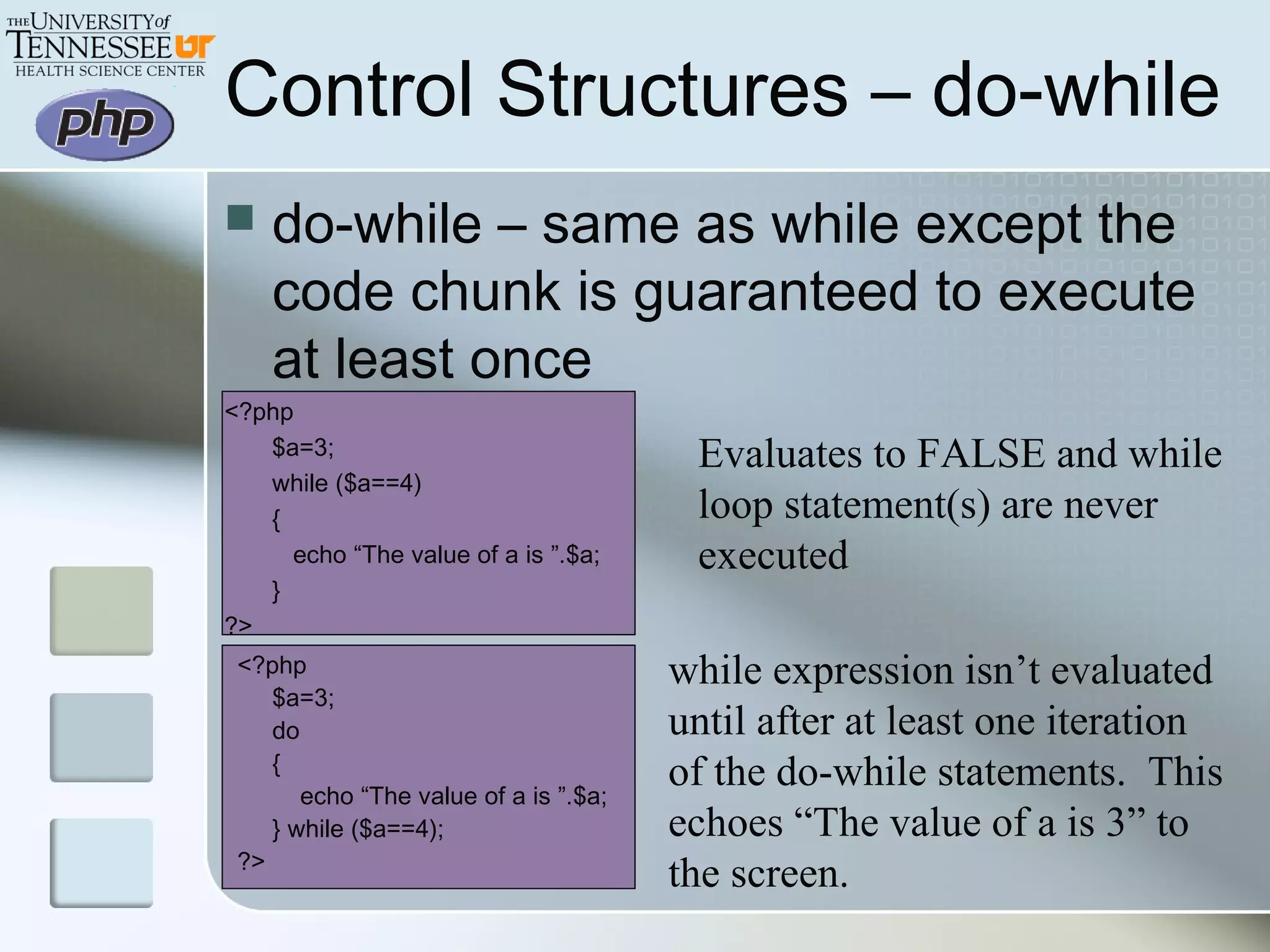
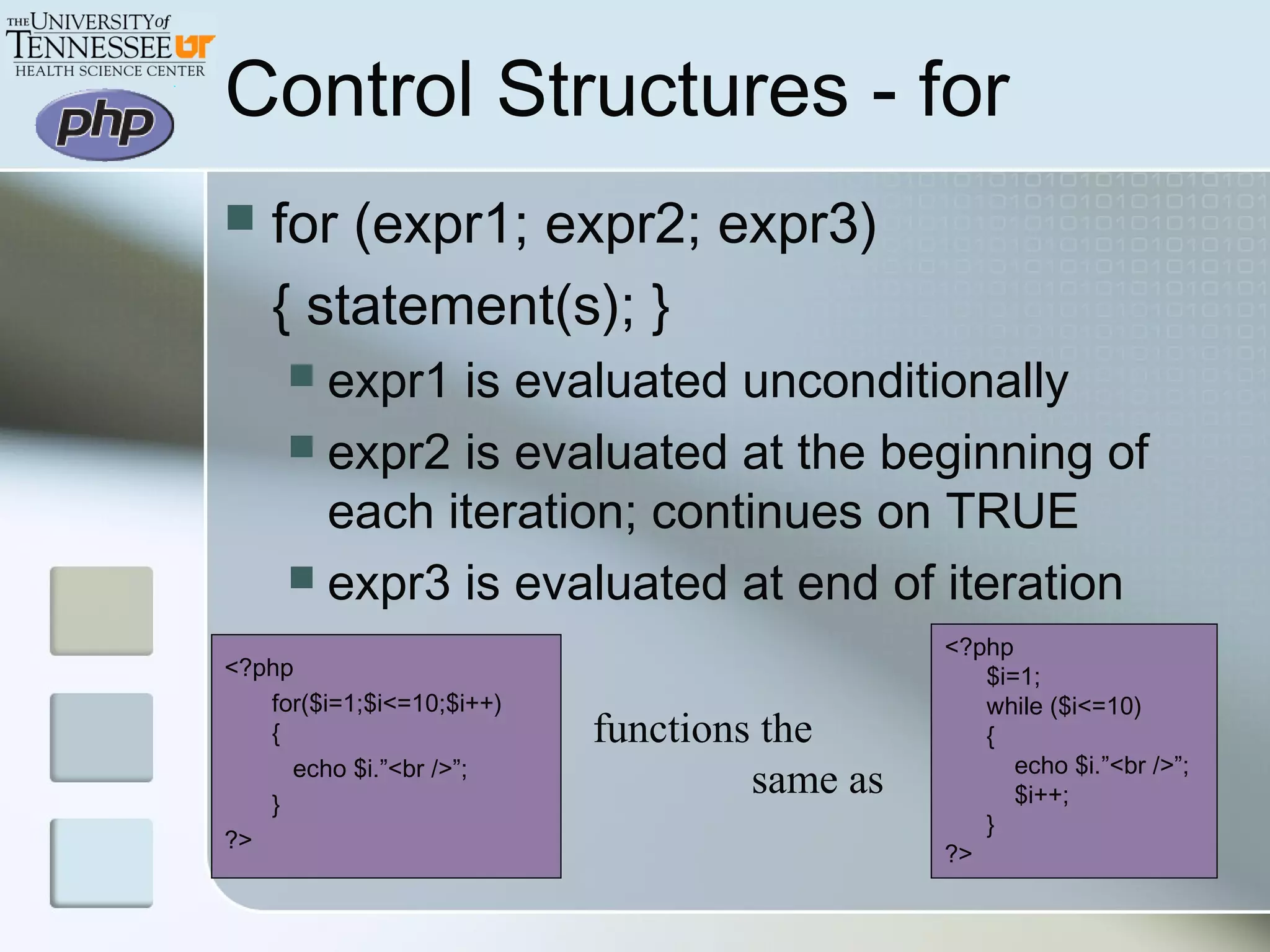
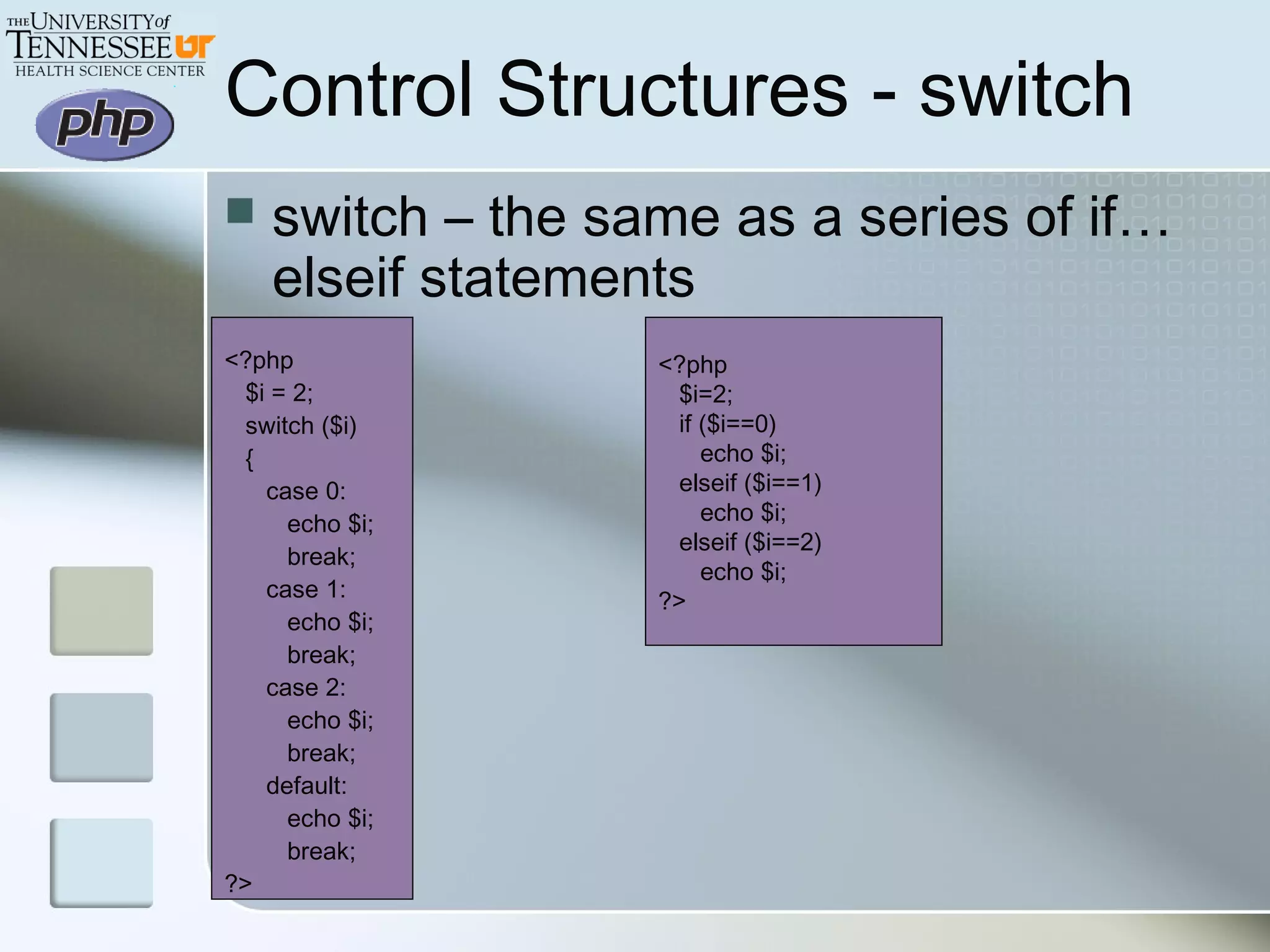
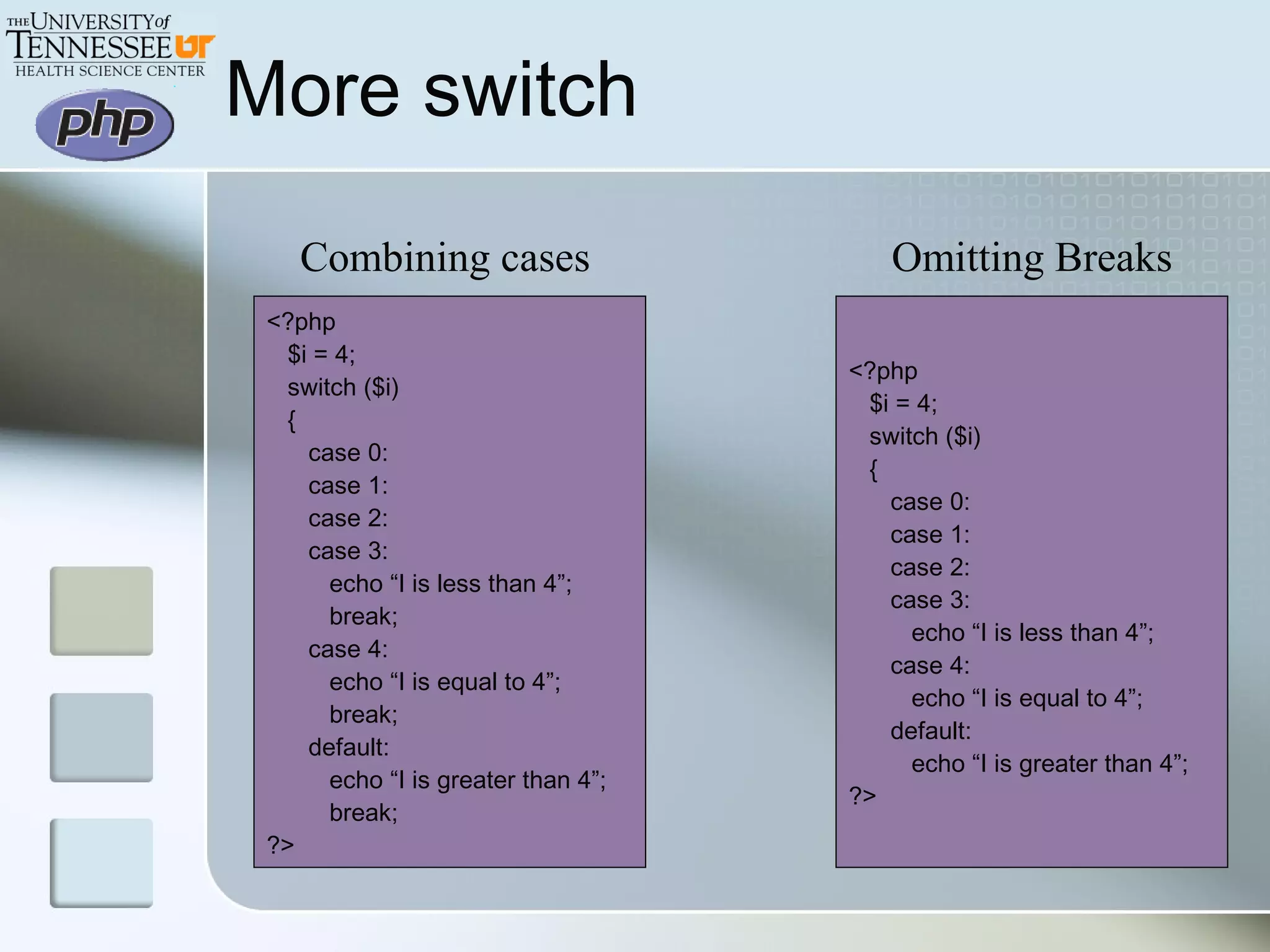
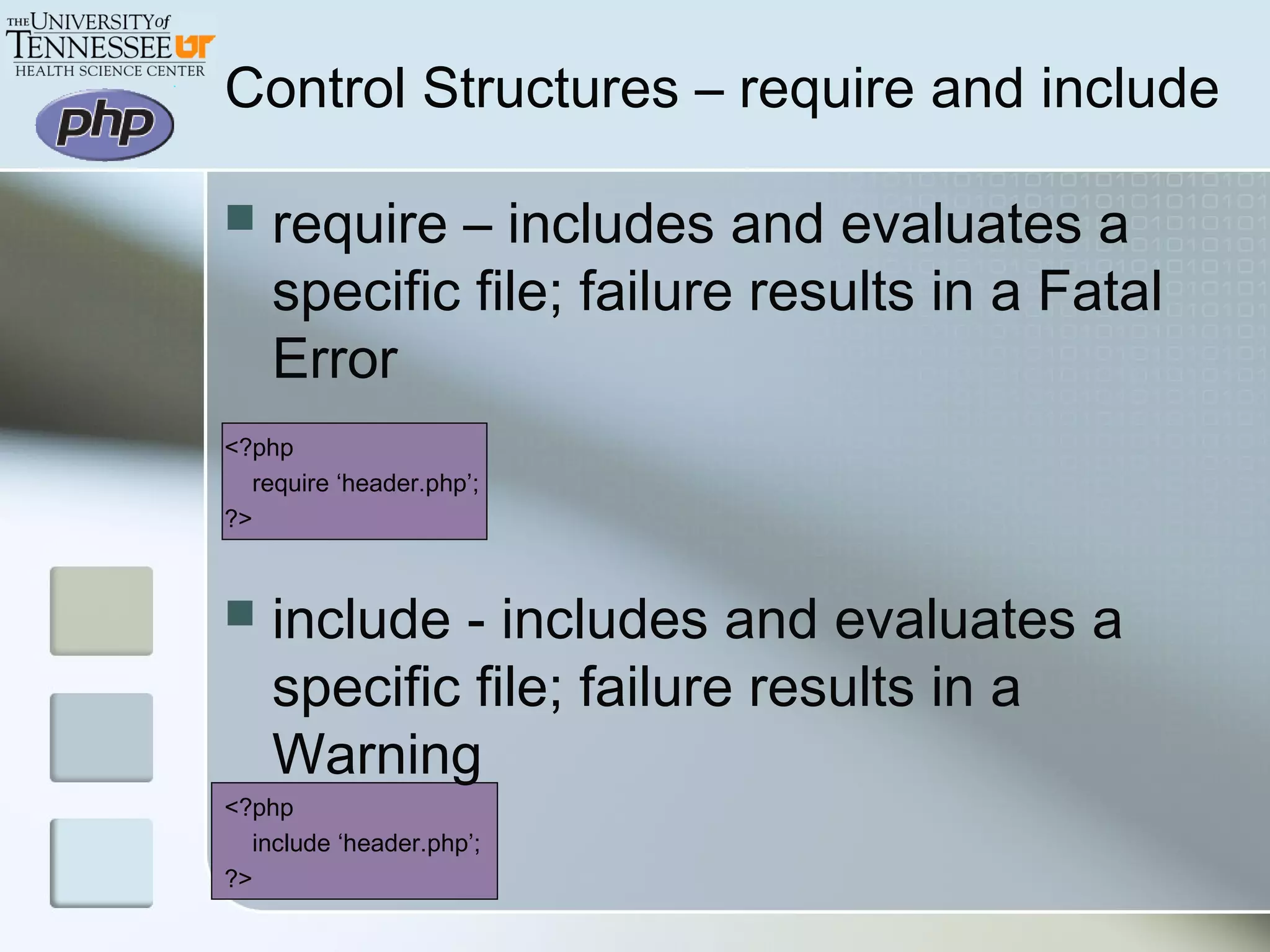
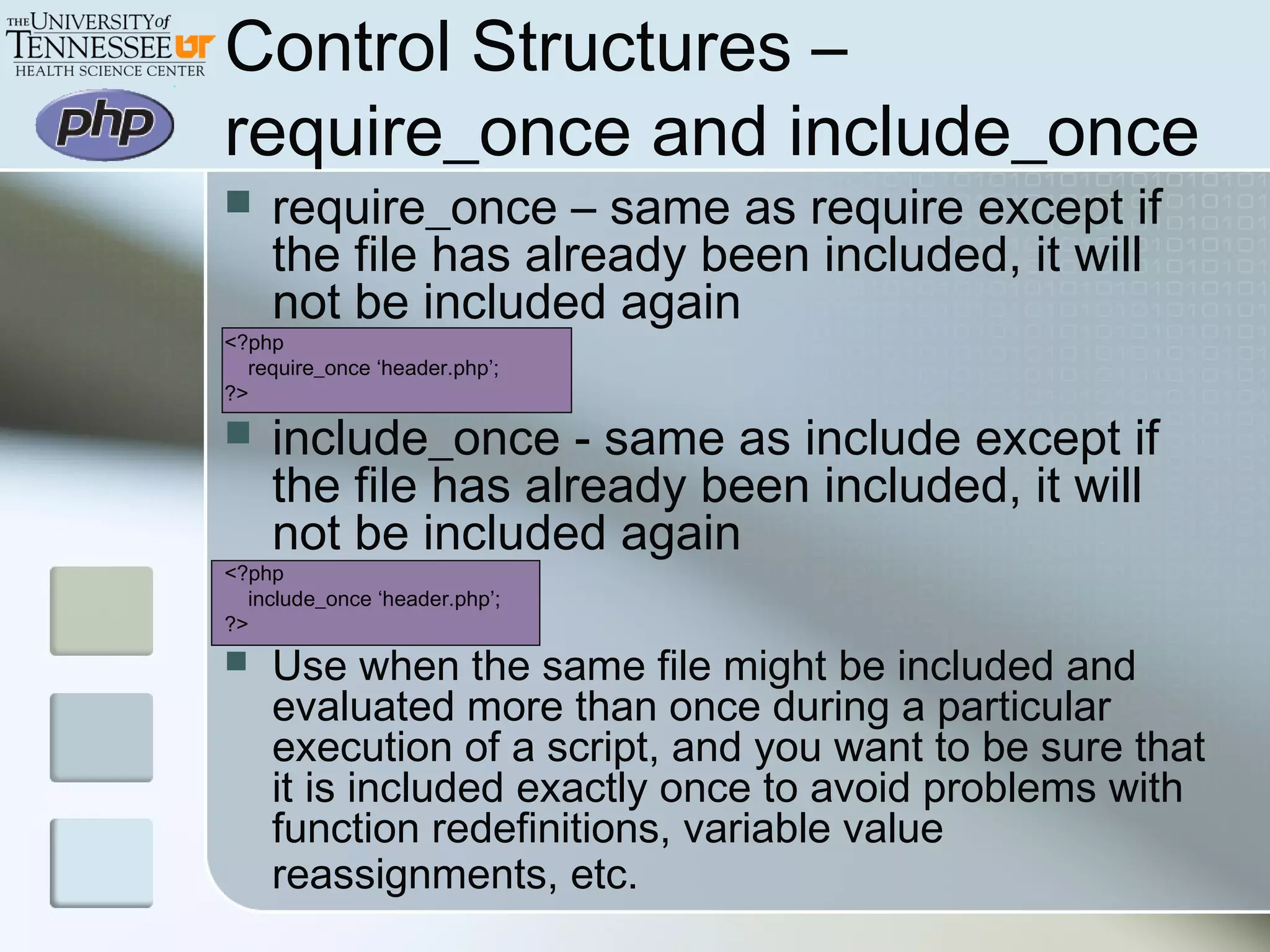
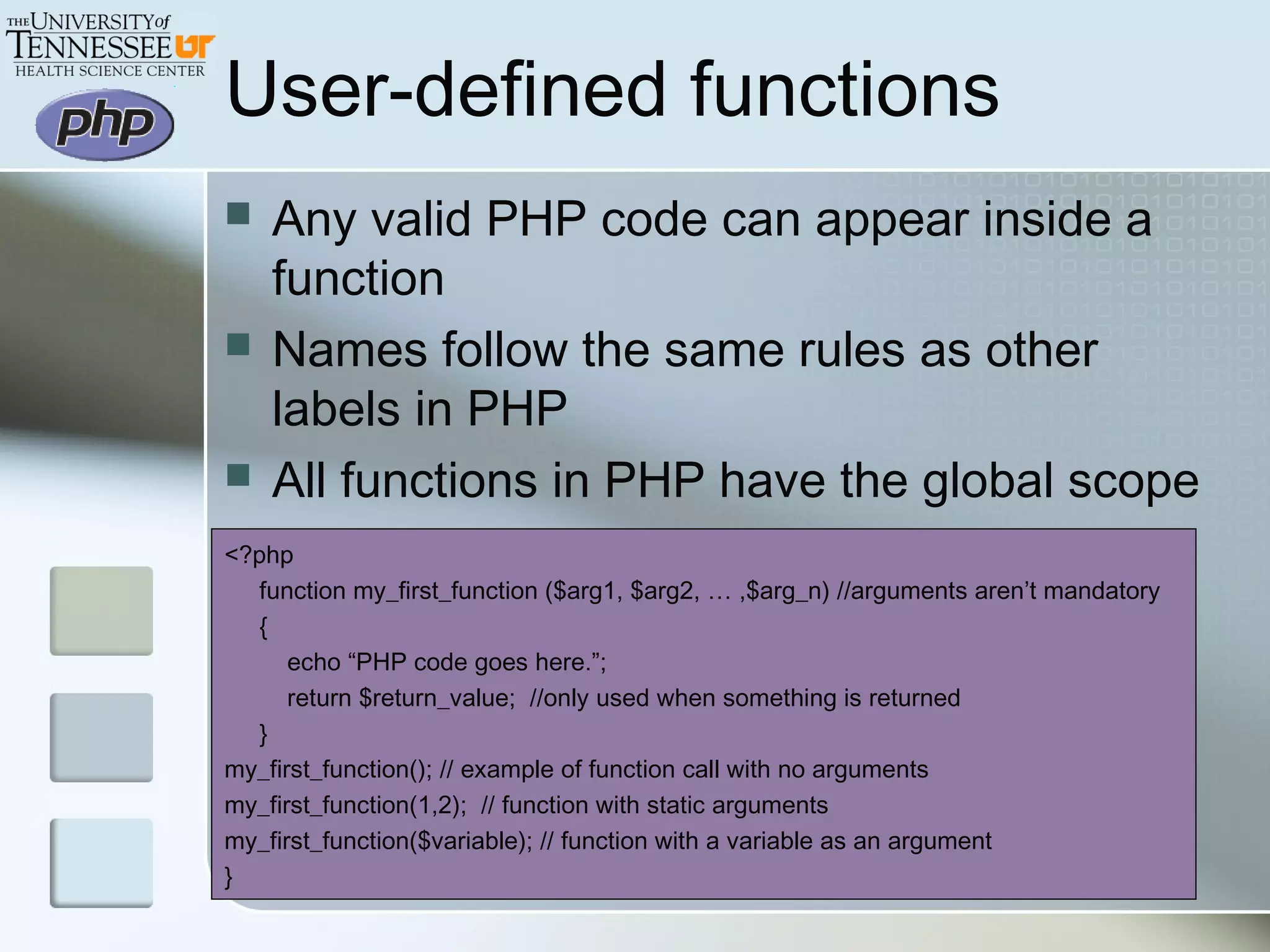
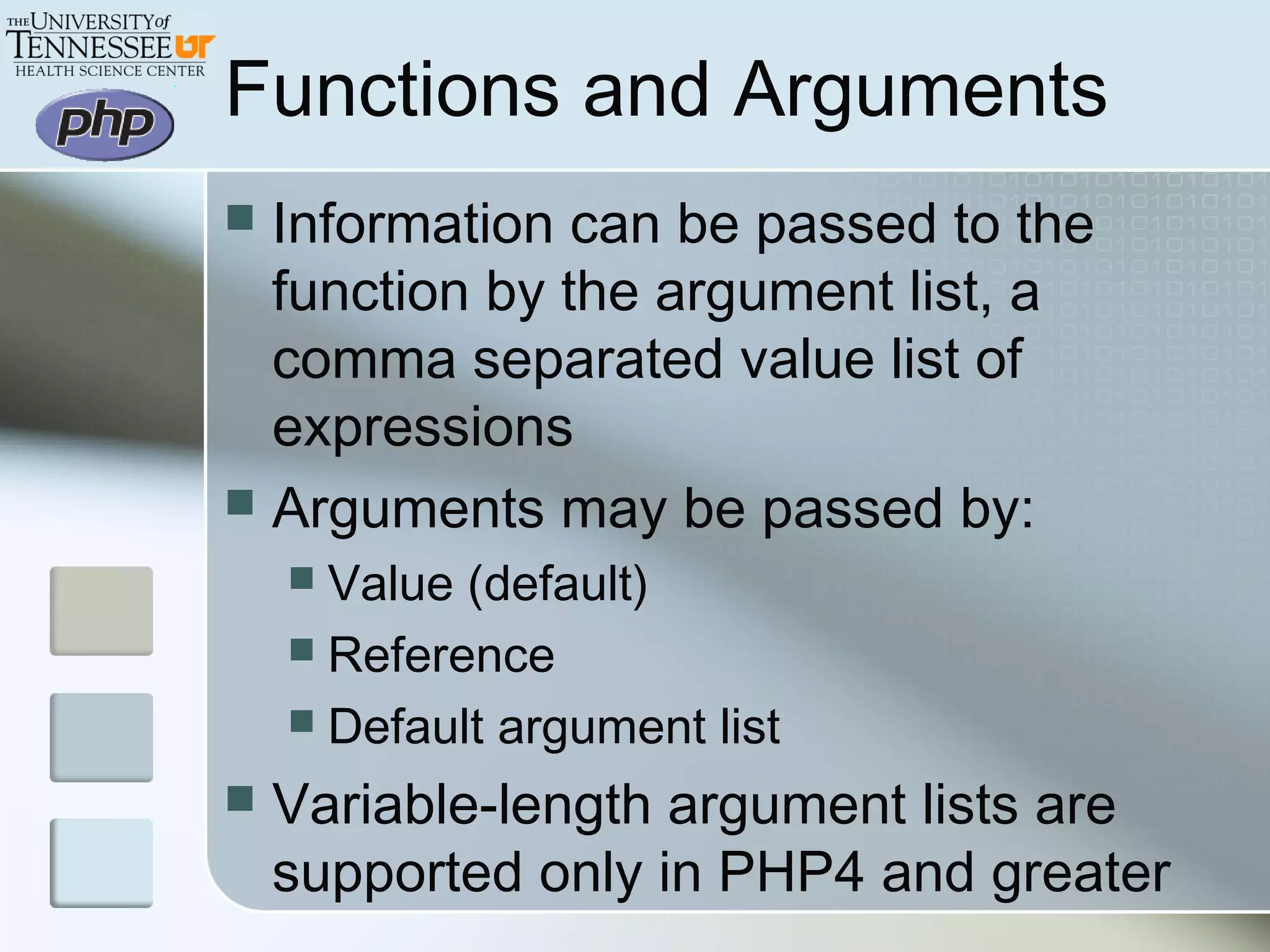
![ Passing by value examples
<?php
######### NUMBERS ###########
function add_numbers($value1, $value2)
{
echo “The numbers $value1 + $value2 equal “. $value1+$value2;
}
add_numbers(3,4); #adding 2 static numbers
add_numbers($age1,$age2); #adding 2 ages given by a user from a form
######### STRING ###########
function display_instructions()
{
echo “Text goes here. Great for text that changes often and is used many places.”;
}
display_instructions();
######### ARRAYS ###########
function add_array_values($func_array)
{
echo “The numbers $func_array[0] + $func_array[1] = “. $func_array[0] + $func_array[1];
}
$main_program_array = array(2,3);
add_array_values($array);
?>
Function Examples](https://image.slidesharecdn.com/introductiontophp-130821003358-phpapp02/75/Introduction-to-php-31-2048.jpg)
![More Function Examples
Passing by Reference and Default Argument List
<?php
$dbc = OCILogon("A201","$password","$database");
function which_name($identifier,&$conn,$count="1")
{
//global $dbc;
//$conn =& $GLOBALS['dbc'];
if ($identifier == "last")
$sql = "select t100_first_name, t100_last_name from a201t100 where t100_last_name like 'Q%'";
else
$sql = "select t100_first_name, t100_last_name from a201t100 where t100_first_name like 'Q%'";
$stmt = OCIParse($conn,$sql);
OCIExecute($stmt);
while ($row=OCI_fetch_row($stmt)) {
echo "<tr><td>".$count++."</td><td>$row[0] $row[1]</td></tr>";}
OCIFreeStatement($stmt);
OCILogoff($conn);
}
echo "<table border='1' cellpadding='3’ width='30%'><tr><td>Count</td><td>Name</td></tr>n“;
which_name("first",$dbc);
echo"</table>";
?>](https://image.slidesharecdn.com/introductiontophp-130821003358-phpapp02/75/Introduction-to-php-32-2048.jpg)
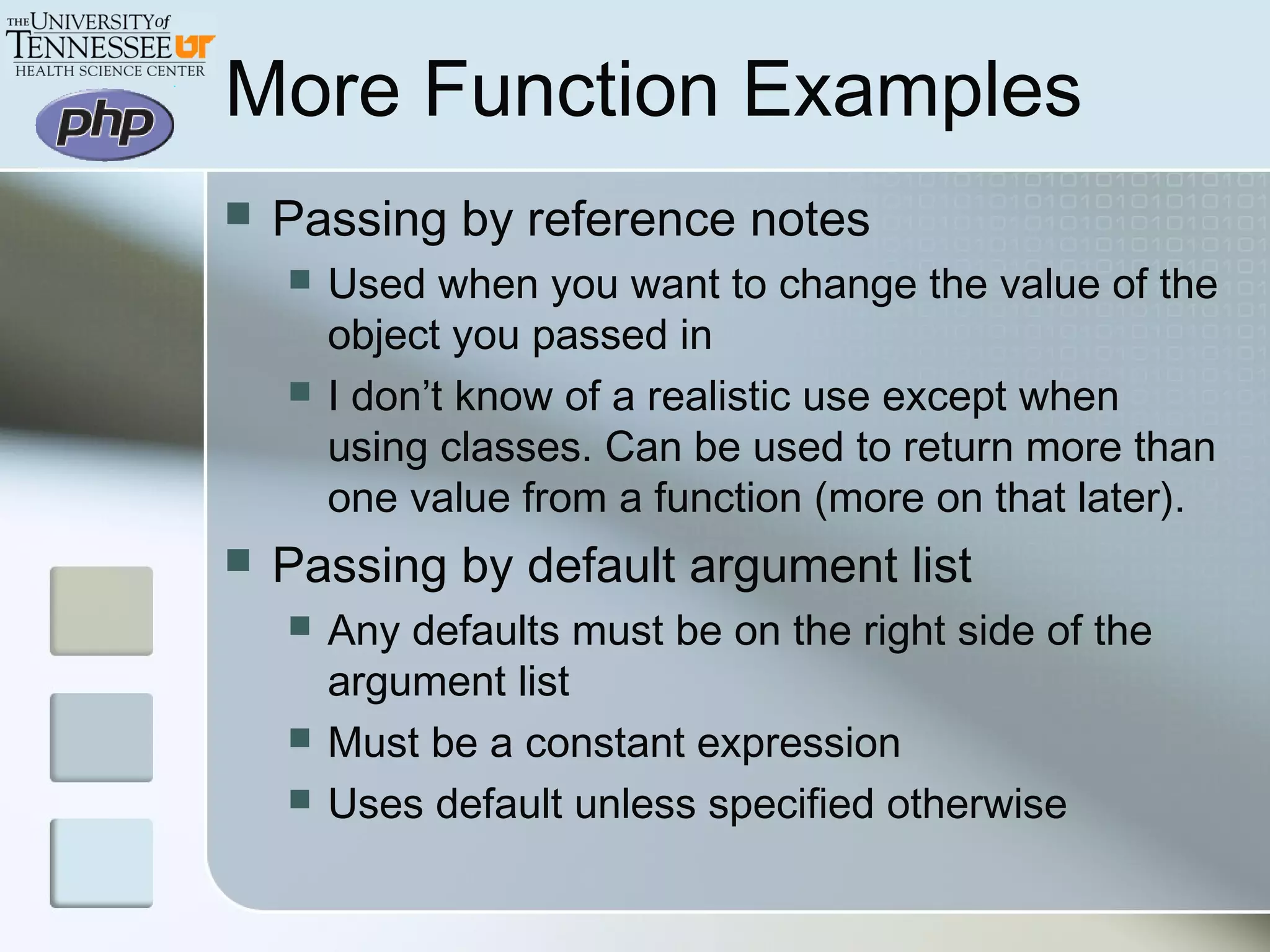
![Variable length argument lists
Uses the func_num_args(), func_get_arg(), and
func_get_args() functions.
<?php
function math()
{
$numargs = func_num_args();
echo "Number of arguments: $numargsn<br />";
echo "The second side is: " . func_get_arg(1) . "<br />n";
$arg_list = func_get_args();
for ($i = 1; $i < $numargs +1; $i++) {
echo "Side $i is: " . $arg_list[$i -1] . "<br />n";
$area += $arg_list[$i -1];
}
return $area;
}
$area_of_object = math(3,4,5,6,1); // Prints 'Number of arguments: 5'
echo "The area of the object is $area_of_object";
?>](https://image.slidesharecdn.com/introductiontophp-130821003358-phpapp02/75/Introduction-to-php-34-2048.jpg)
